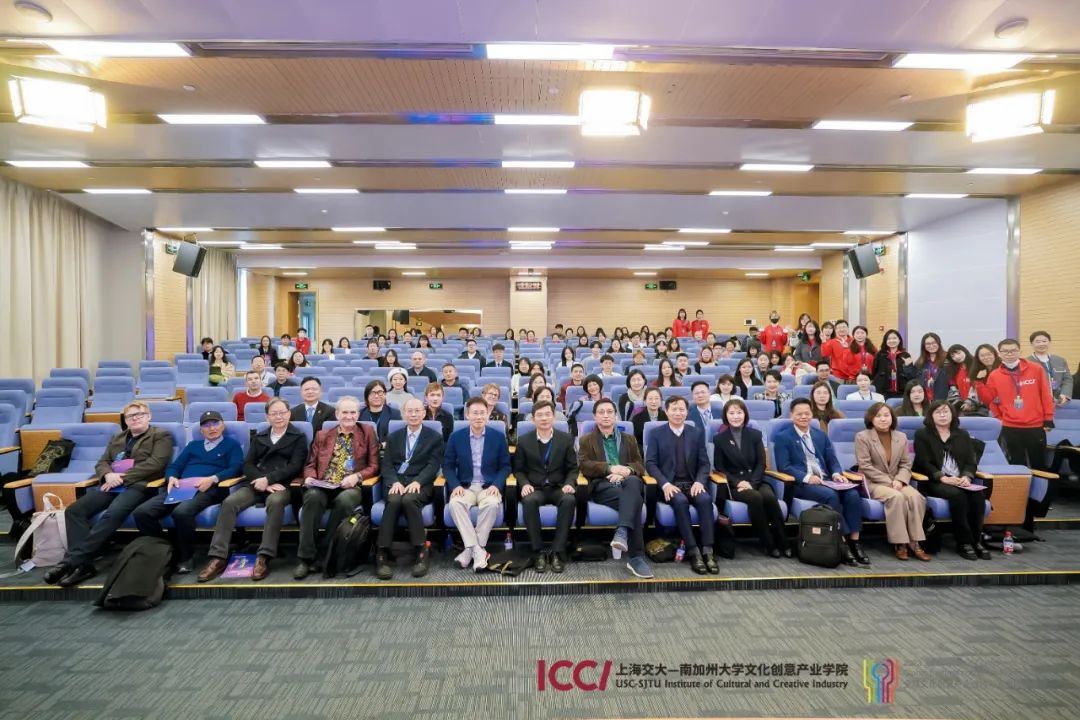
On December 10th, the 2023 International Conference on Global Cultural and Creative Industries (referred to as "the Conference") took place at the Zizhu International Education Park. Hosted by the USC-SJTU Institute of Cultural and Creative Industry of Shanghai Jiao Tong University (hereinafter referred to as ICCI), it attracted experts and scholars from esteemed institutions worldwide, including Shanghai Jiao Tong University, University of Southern California, University of London, Hong Kong University of Science and Technology, City University of Hong Kong, University of Warwick, Wuhan University, Shandong University, Beijing Normal University, Communication University of China, and others. The event, held both online and offline, featured discussions on pivotal topics like intelligent interaction and creativity, digital civilization, and global transformations.
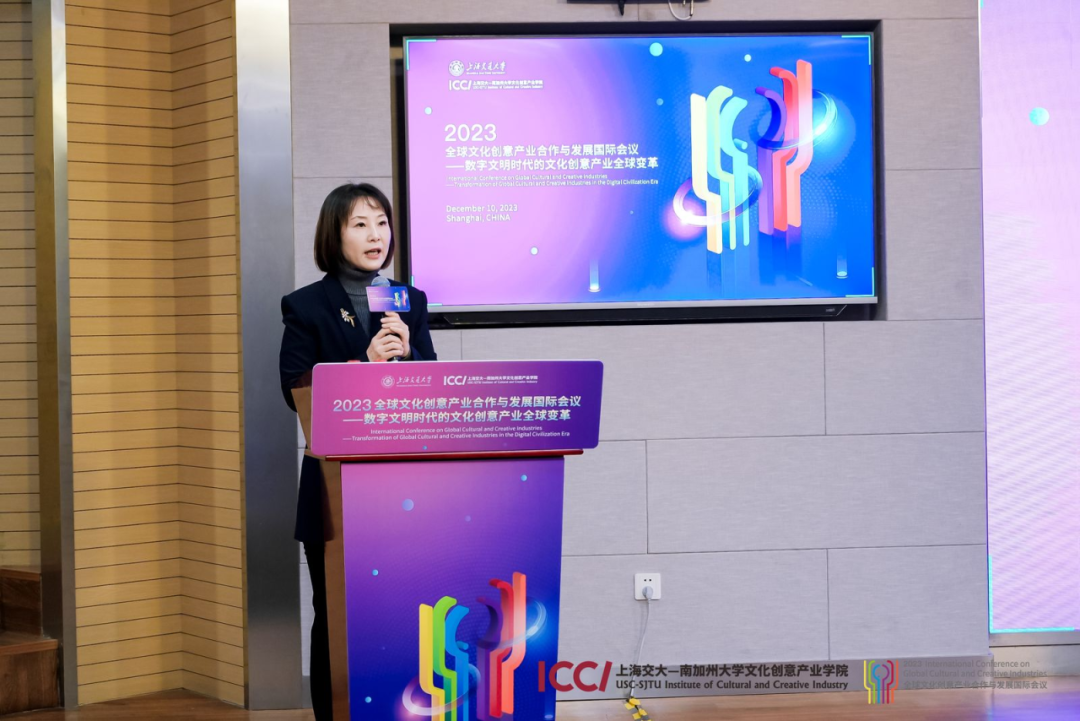
Ke XUE, Vice Dean of ICCI, Chair of the Conference
Professor Ke XUE led the Conference and warmly welcomed all participants, highlighting the cultural and creative industry's vital role in global economic development and innovation. ICCI's goal for this Conference is to create an interdisciplinary platform for collaboration among scholars and industry professionals. Together, they'll explore new facets, challenges, and opportunities in the cultural and creative industry. The aim is to discuss emerging global industry trends, foster the sector's growth, and make a substantial contribution to enriching global cultural diversity.
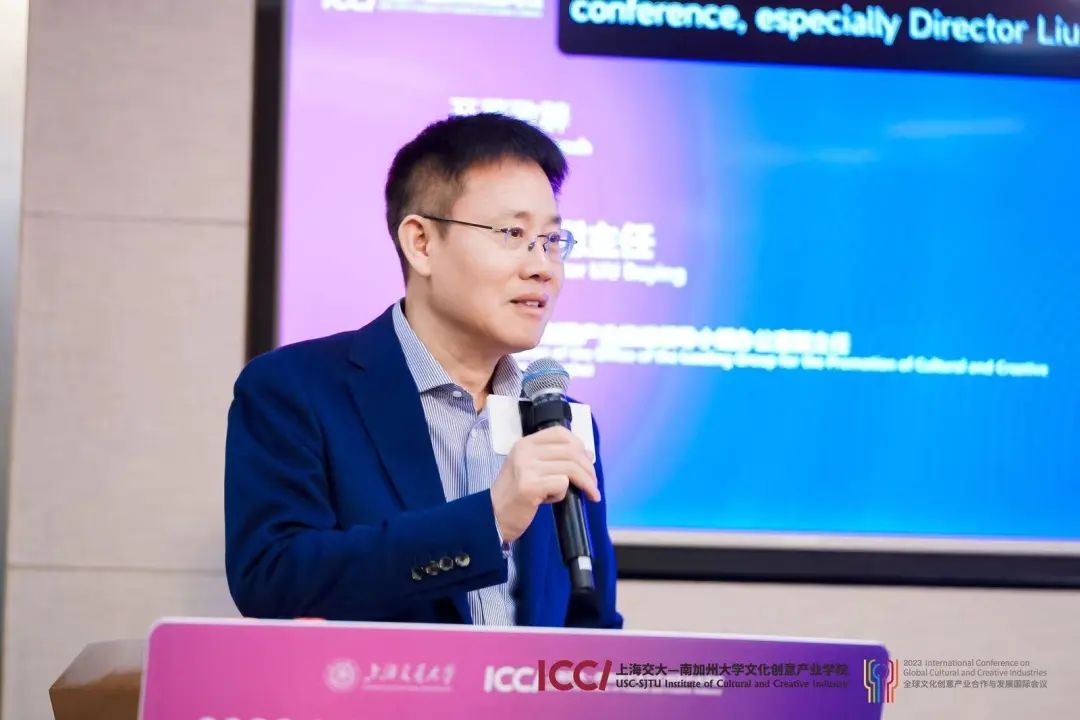
Boying LIU, Deputy Director of Shanghai Cultural and Creative Industry Development Leading Group Office
Mr. Boying LIU addressed the forum, emphasizing Shanghai's dynamic cultural and creative industry trends. He praised ICCI' groundbreaking research in this field and anticipated the conference to act as a global platform. The objective is for experts and scholars to delve into developmental trends, innovative models, and cooperative mechanisms in the world's cultural and creative industries, aiming for advancements in social governance and industrial development.
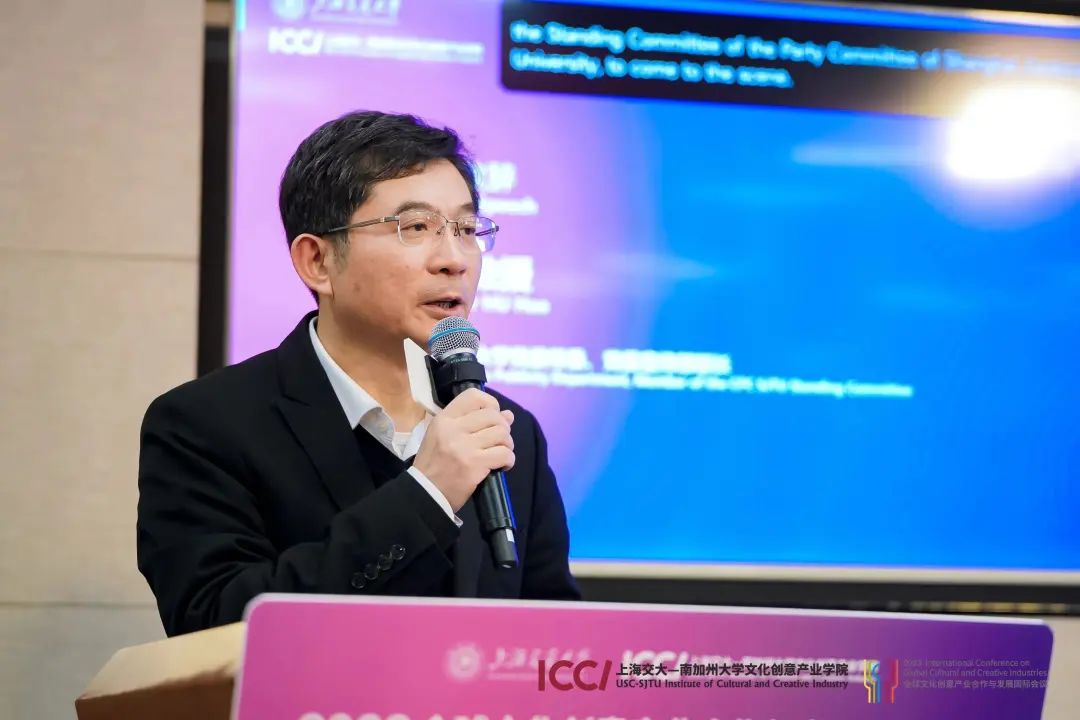
Hao HU, Director of the Publicity Department of the CPC Shanghai Jiao Tong University Committee, and Member of the CPC SJTU Standing Committee
Professor Hao HU praised ICCI's educational strategy focused on internationalization, interdisciplinary studies, and industry alignment. He commended ICCI's innovative cultural and creative laboratory platforms, which support students' innovative practices. HU highlighted the Conference's visionary theme and topics, providing experts and industry professionals with an opportunity for profound discussions and exploration of developmen pathways in the cultural and creative industries.
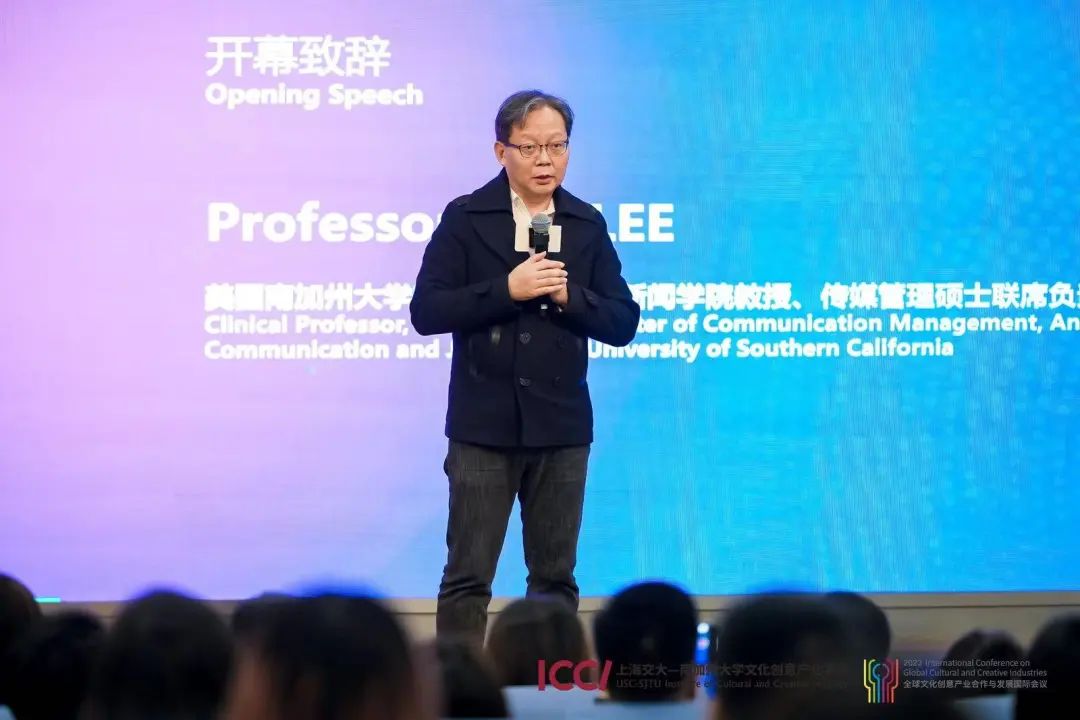
Ben LEE, Professor at USC Annenberg School for Communication and Journalism, Co-Director of the Communication Management Program of ICCI.
Professor Ben Lee, attending the conference for the second time, expressed gratitude for ICCI's invitation. He sought to share insights on the cultural and creative industries' future development. Additionally, he looked forward to future collaborations between the University of Southern California and ICCI.
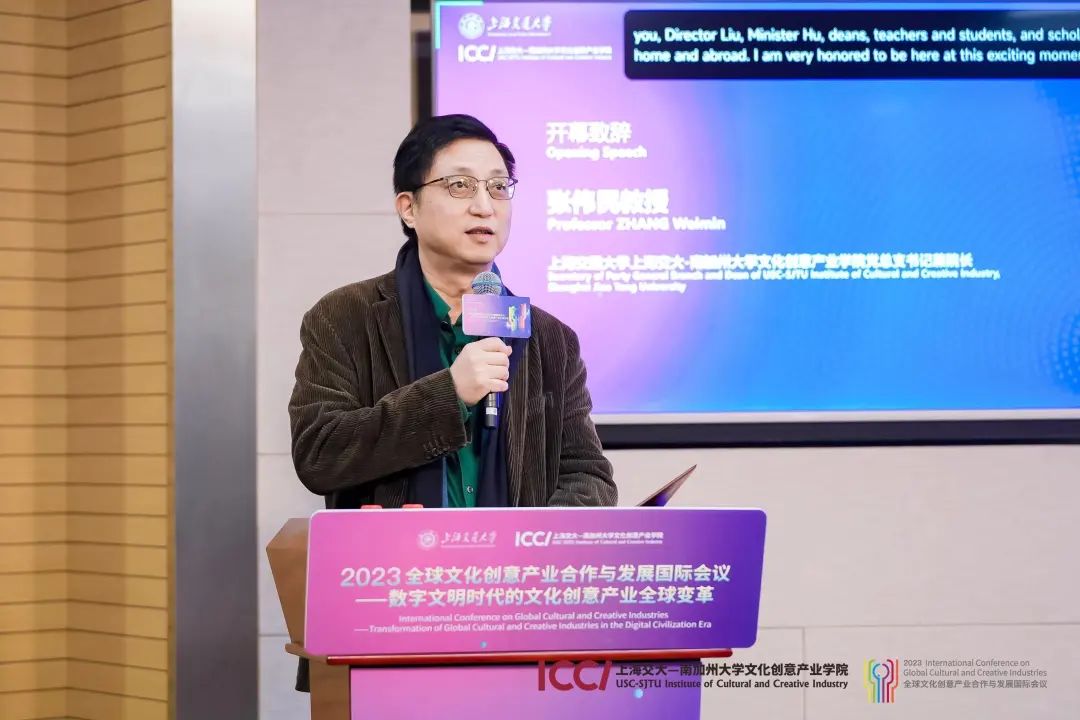
Weimin ZHANG, Dean of ICCI
Professor Weimin ZHANG extended a warm welcome and gratitude to the distinguished guests, highlighting the success of ICCI's sixth International Conference. With over 5000 participants from 30+ countries, it has fostered global communication and collaboration. The Conference serves as a significant platform for experts, scholars, practitioners, and students in cultural and creative industries, contributing to Shanghai's cultural sector and the Yangtze River Delta's development. Reflecting on past success, Professor ZHANG hoped to invite more global talents to join ICCI, advancing the cultural and creative industries further.
Keynote Forum
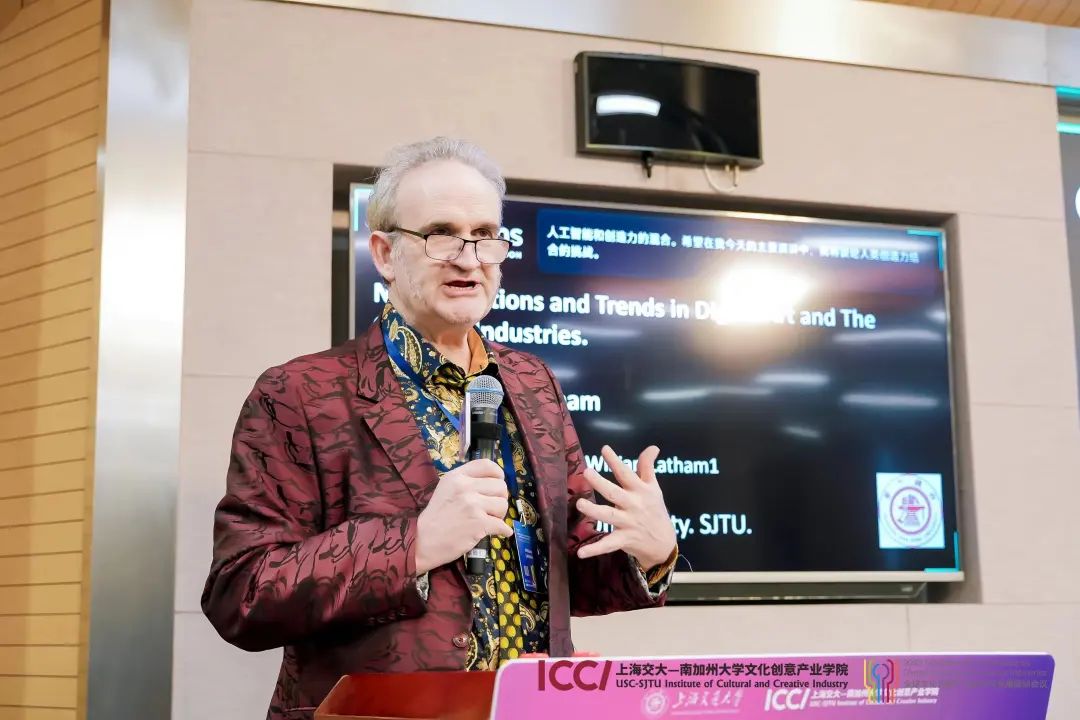
William LATHAM, Professor at Goldsmiths, University of London, Computing Department
Professor William LATHAM presented a keynote speech on "New Trends in Digital Technology and Creative Industries." He showcased his team's accomplishments and discussed global trends in digital creativity. He highlighted 14 pioneering areas in the forefront of digital creativity, encompassing generative art, creative robotics, scientific visualization, game development, AI art, non-fungible tokens (NFTs), and virtual/augmented reality experiences. Moreover, he shared insights into the challenges of nurturing students and their impact on the industry, prompting novel perspectives on intelligent art education in the digital age.
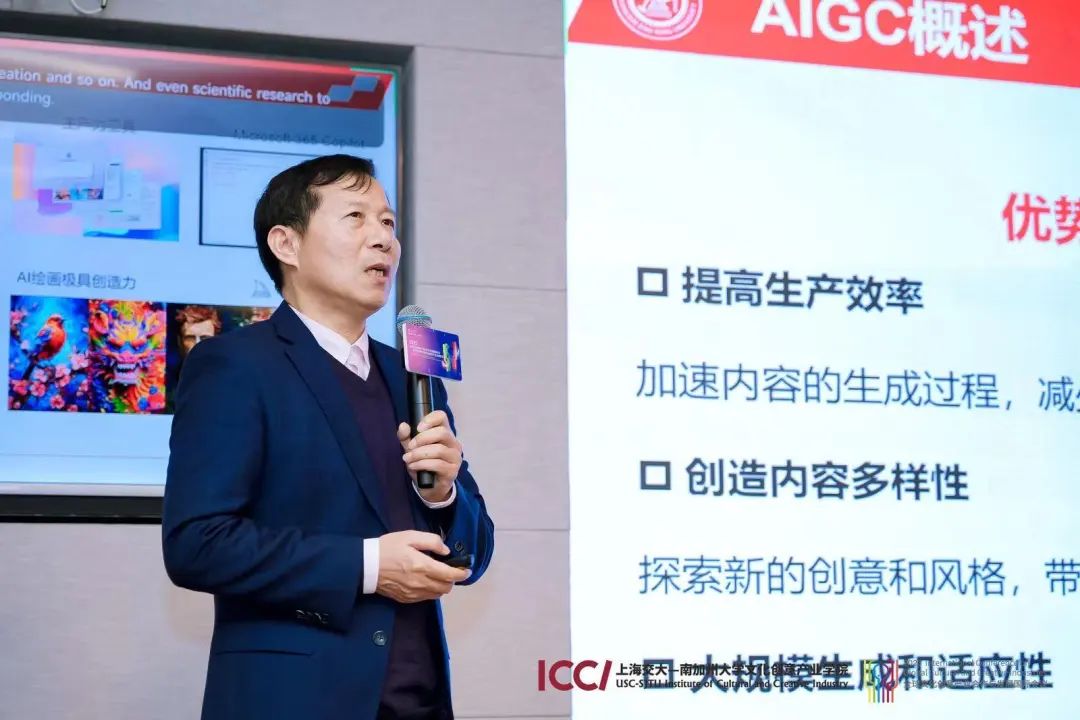
Lizhuang MA, Distinguished professor and Vice Dean of Artificial Intelligence Institute, Shanghai Jiao Tong University
Professor MA delivered a keynote speech titled "AIGC: Progress and Challenges in Intelligent Interaction and Creativity." He introduced AIGC, its applications, and highlighted its potential benefits like productivity enhancement. Yet, he acknowledged challenges in semantic understanding, data bias, and legal concerns. Professor MA summarized the cost and intellectual property challenges, and discussed future directions, aiming to explore innovative topics while addressing these issues.
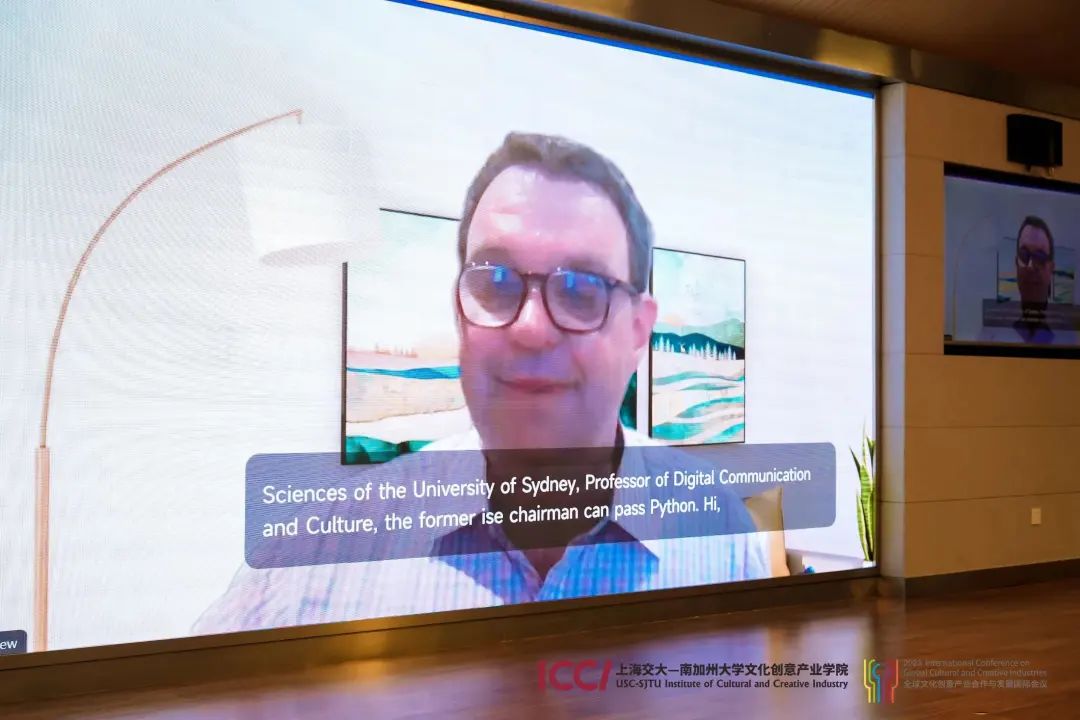
Terry FLEW, Professor of Digital Communication and Culture Fellow, the University of Sydney, Australian Research Council Laureate Fellow
Professor Terry FLEW presented on "AI's Impact on Creativity: Global Perspectives." He discussed AI's influence on cultural innovation and its transformative effect on the creative industry, covering content creation, virtual technology, and recommendation systems. Professor Flew emphasized AI's potential to enhance human creativity while challenging traditional creative industry paradigms, showcasing the coexistence of opportunities and challenges in the AI era.
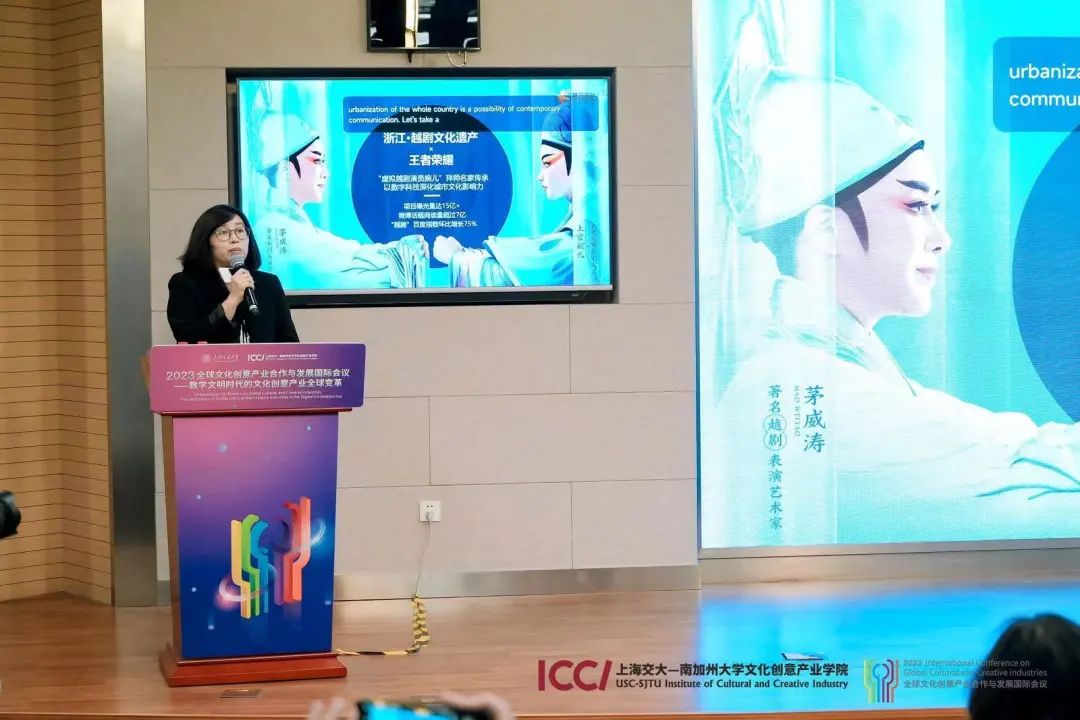
Kun CAI, Director of Tencent Interactive Entertainment Group East China Market Brand and Digital Ecological Marketing Department, Vice President of the Shanghai Electronic Sports Association
Ms. Kun CAI presented a keynote speech on "Leveraging Digital Capabilities for Advancing Urban Cultural Tourism." She highlighted Tencent Interactive Entertainment's global strategies, linking academic research, industry, philanthropy, social services, and cultural tourism partnerships. Through collaborations like "Zhejiang Yue Opera Cultural Heritage x Honor of Kings" and "Baiheliang Ancient Hydrological Inscription Museum x Honor of Kings," Ms. CAI showcased Tencent's digital solutions facilitating new content, scenarios, and consumption patterns, benefiting cultural tourism development. She expressed aspirations for enhancing collaboration with industry peers.
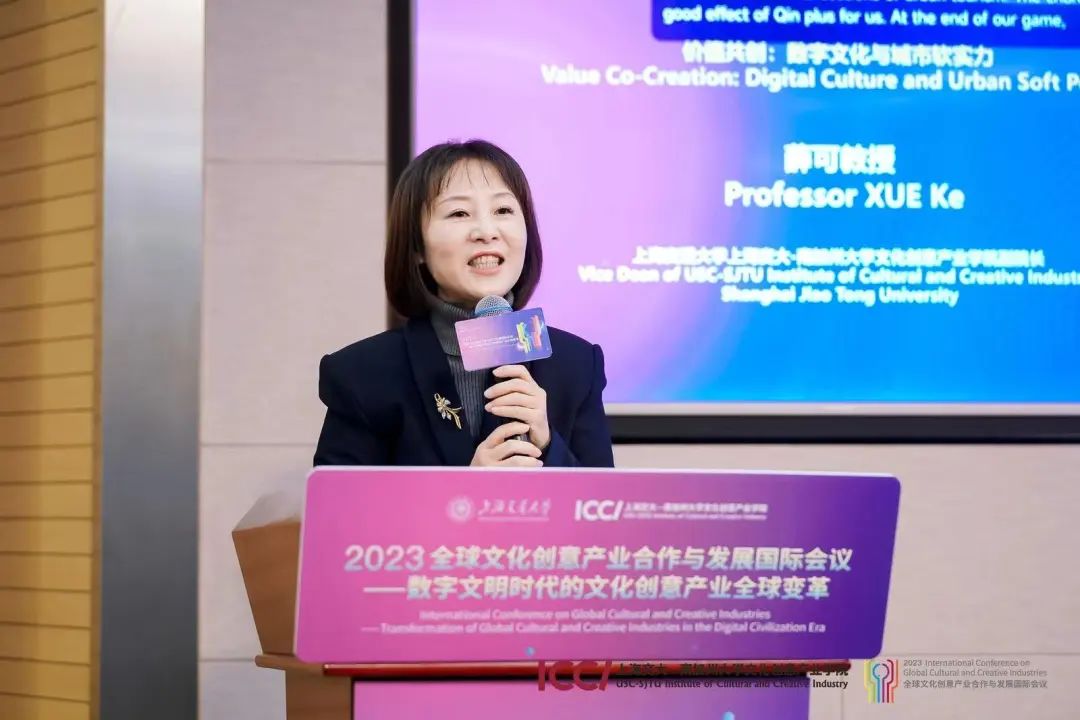
Ke XUE, Vice Dean of ICCI, Chair of the Conference
Professor Ke XUE delivered a keynote speech titled "Value Co-Creation: Digital Culture and Urban Soft Power." Her speech covered four aspects: "Digital 'Culture': Foundation of Urban Soft Power," "Digital 'Script': Cultural Significance," "Digital 'Script': Cultural Dissemination," and "Digital 'Culture': Strategies for Urban Soft Power." Professor XUE emphasized the strategic use of digital culture to revitalize a city's cultural landscape and stressed aligning with China’s national digital culture strategies. She highlighted the need for local digital culture policies as key drivers of Chinese modernization. Professor XUE urged leveraging digital culture to enrich urban soft power, underlining its role in urban development and advocating collaboration among cities and industries.
Editor’s Forum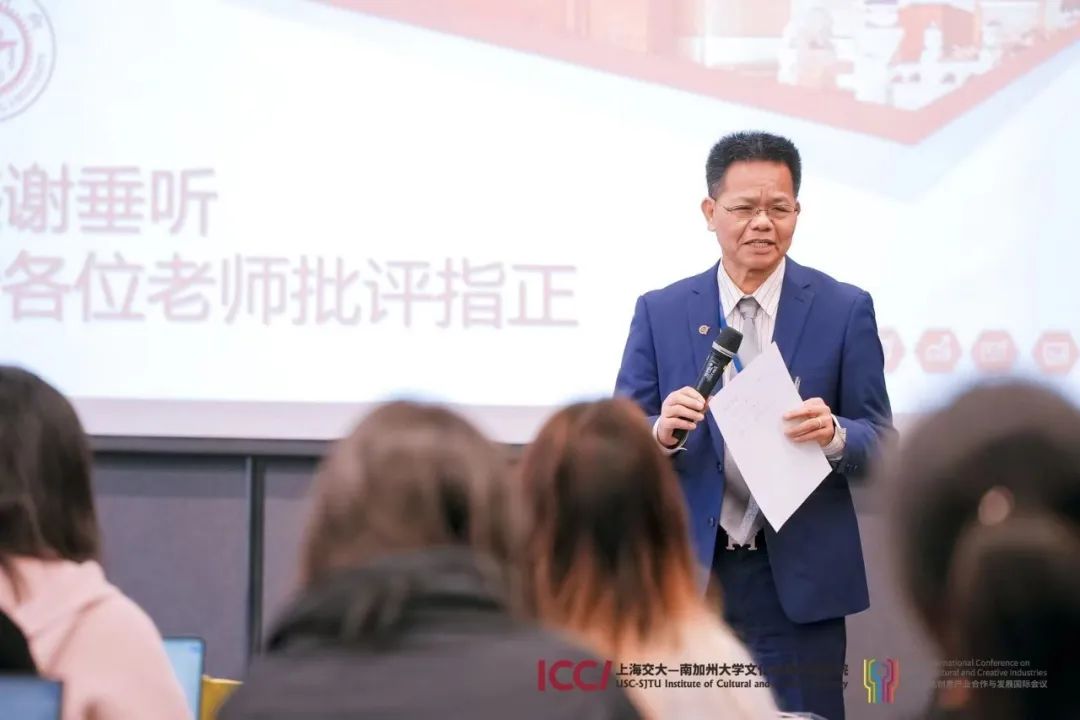
Shuhua ZHOU, Editor of the Journal of Broadcasting and Electronic Media, Editor of Communication and Society, and Chair Professor of Media and Communication at City University of Hong Kong
The forum, themed "Human-Computer Interactions and Ethical Challenges," delved into the impact of current technological advancements on daily life and creativity. Representatives from Shanghai Jiao Tong University - Zhenghao JIN and Dr. Yitong HUANG, Hong Kong University of Science and Technology - Dr. Ze GAO, shared insights on topics like esports players' mental and physical health development and ChatGPT's influence on artistic creation. Professor Shuhua ZHOU offered guidance to authors on refining research focus and thematic concentration.
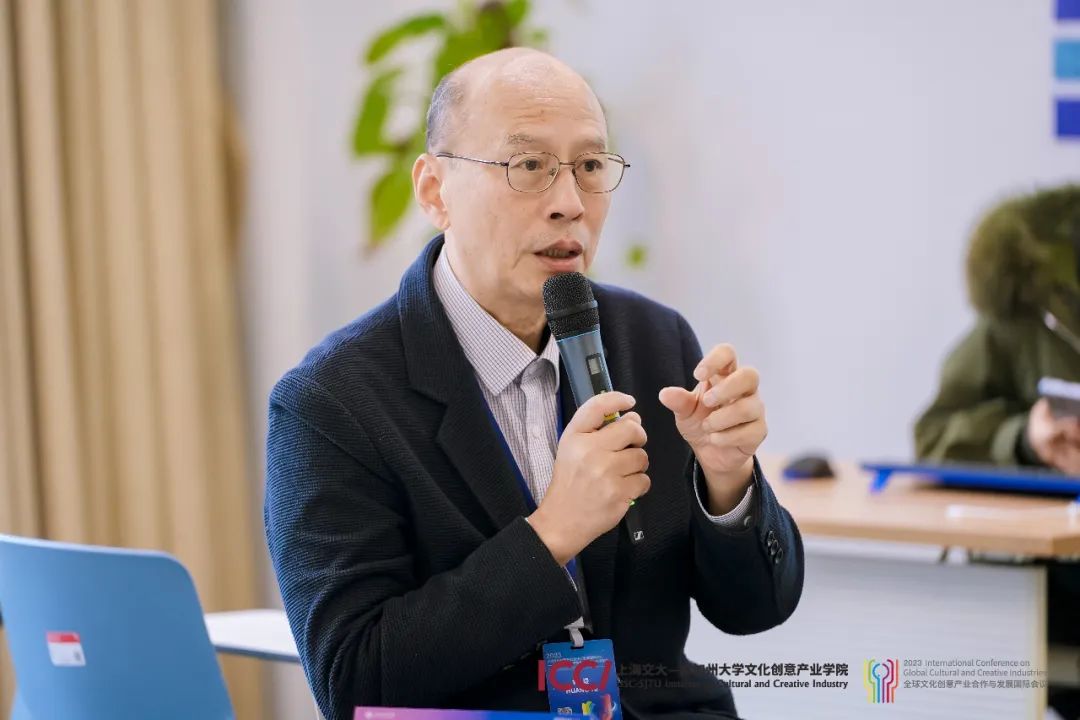
Yu HUANG, Professor of School of Communication at Hong Kong Baptist University, Editorial Board Member of Journal of Communication and Society
The Editor’s Forum on "Immersive Experience and Embodied Cognition " explored online virtual exhibitions and live webcasts. Wei DONG from Zhejiang Media College and Yiwei CHEN from Shanghai Jiao Tong University shared insights into exhibition audience experiences and social relationships during live webcasts. Professor Yu HUANG actively engaged with authors, discussing social communication, cultural creativity, and research design aspects.
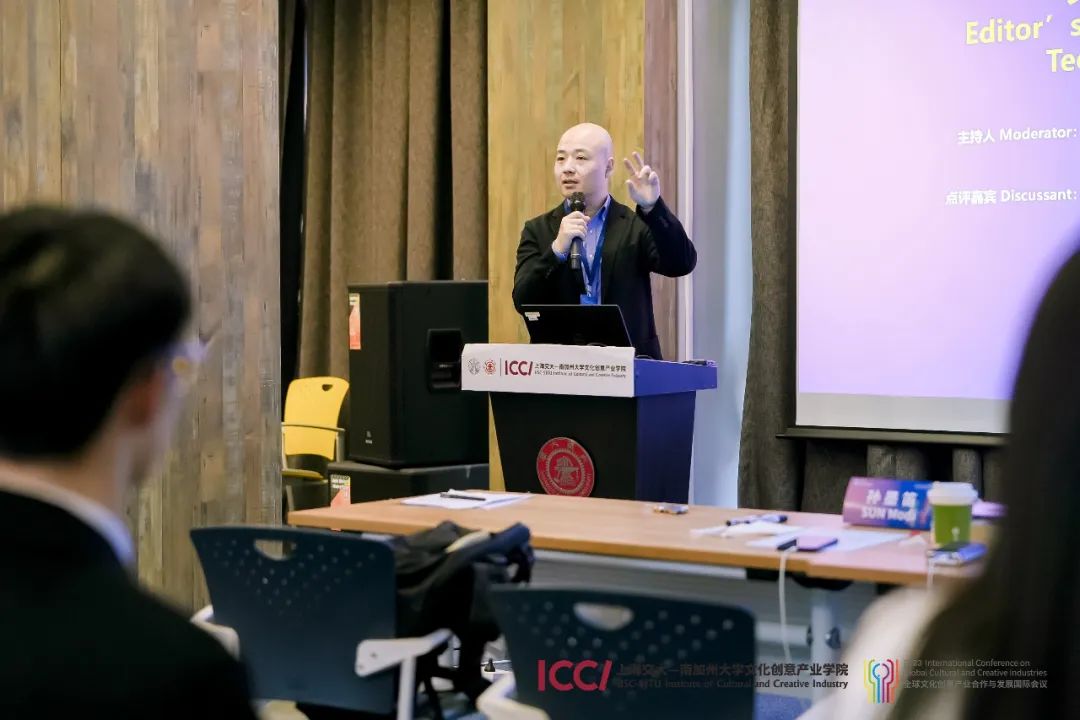
Modi SUN, Director of the Center for Periodical Publishing and Academic Exchange, Academy of Contemporary China and World Studies, Executive editor of International Communications.
The forum "Cultural Inheritance and Technological Empowerment," delved into the integration of cultural heritage with digital life. Hongsheng ZHAO from the Communication University of China, Hanbing WANG from the University of London Goldsmiths, and Mr. Modi Sun discussed the better development of intangible cultural heritage in the digital era and explored topics like gamification and immersive virtual exhibitions of cultural heritage.
Parallel Panels
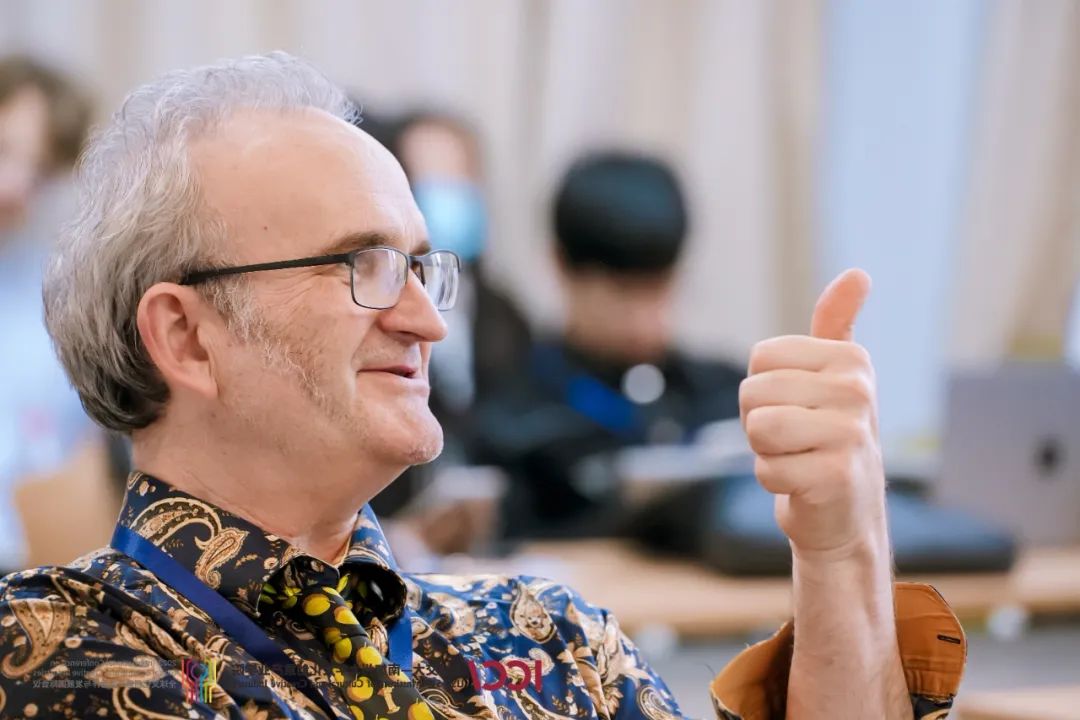
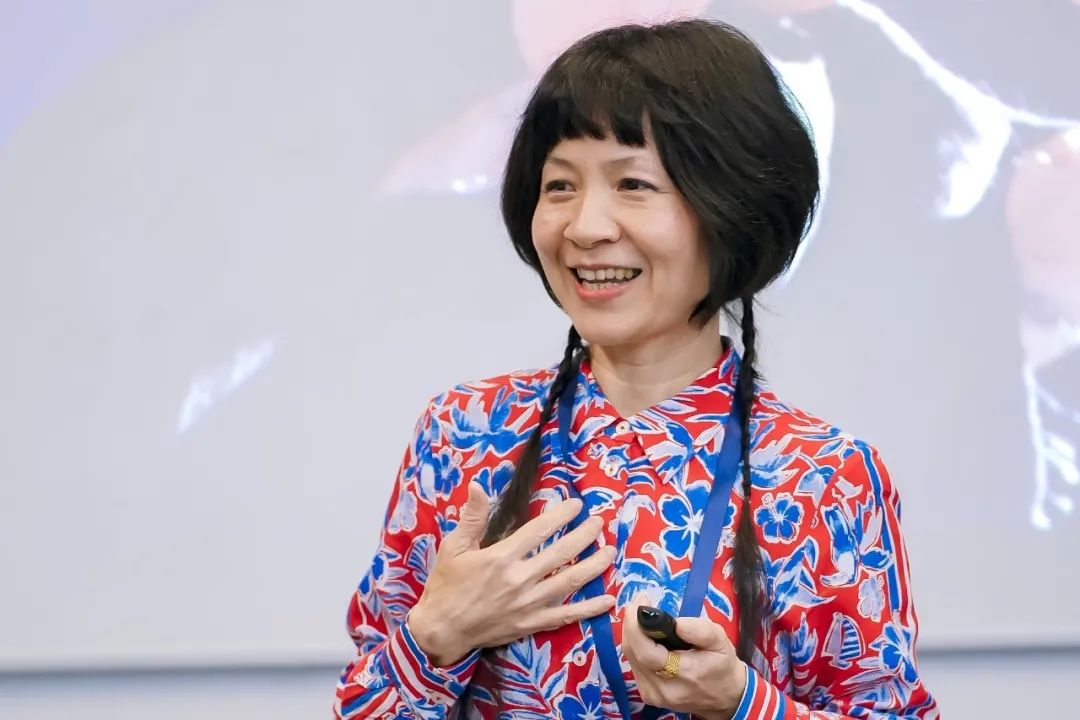
William Latham / Wenxun HE
The panel "Digital Art and Sensory Experience" delved into the intersection of art technology and sensory cognition. Scholars from Shanghai Jiao Tong University, Nanyang Technological University, Goldsmiths - University of London, Zhengzhou University, Hainan University, and more explored the impact of AI and digital art on psychological cognition and sensory emotions. The panel moderator Dr. Yu YAN, along with discussants Professor William Latham and Dr. Wen-Shing HO, engaged in discussions and provided research recommendations based on the speakers' perspectives.
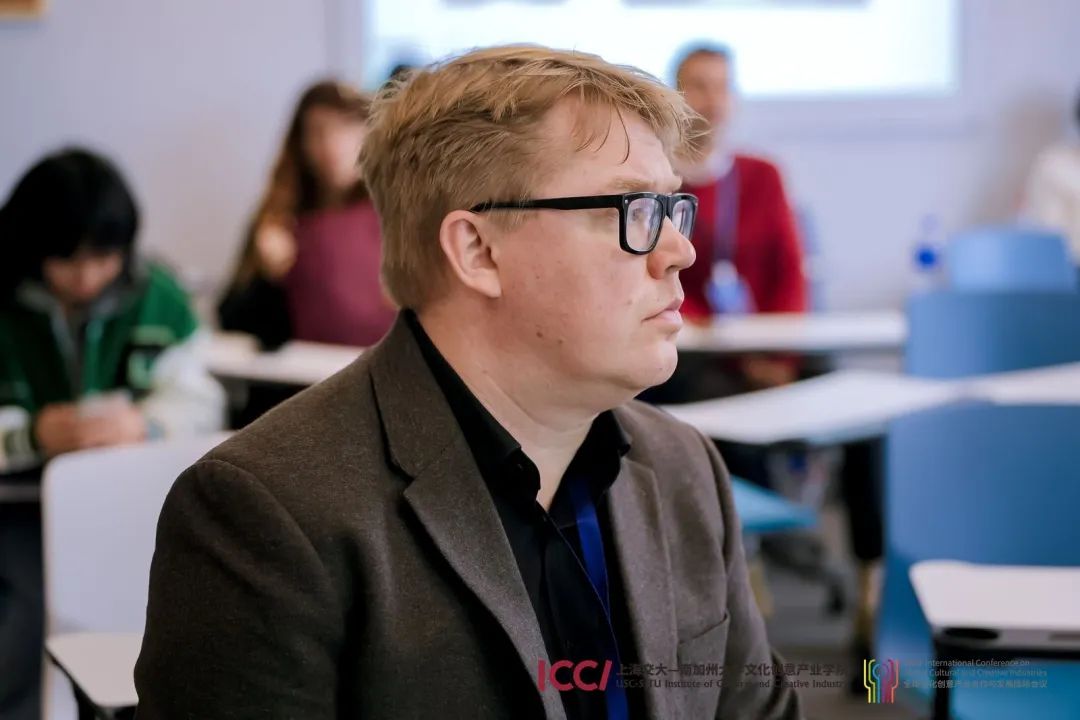
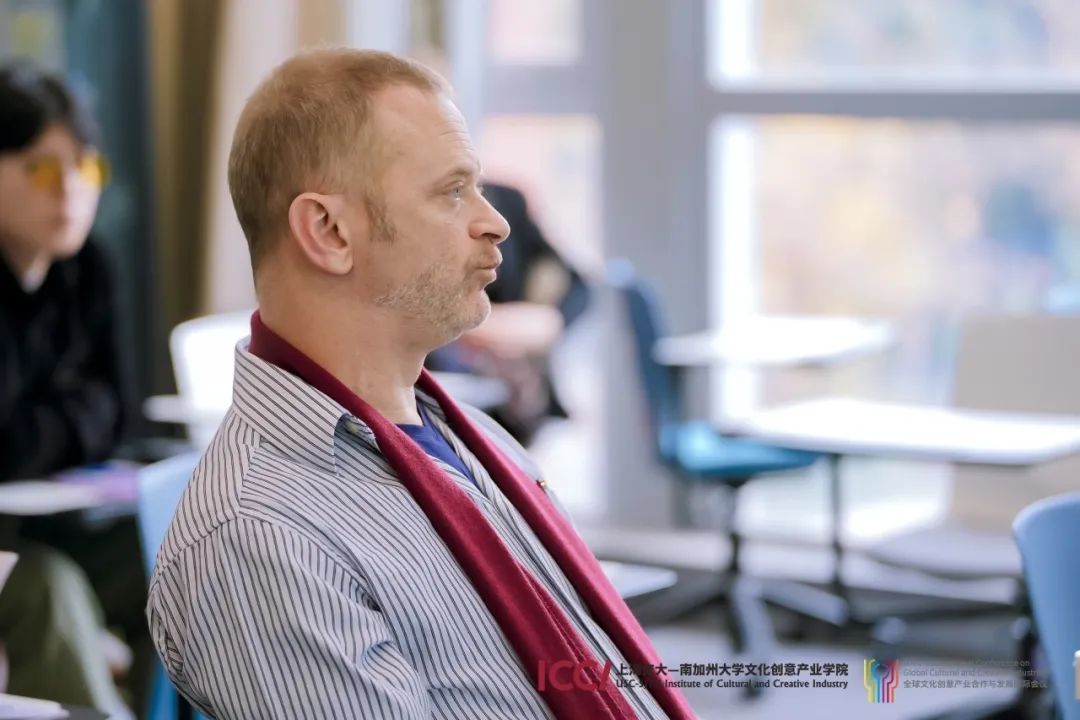
Pietari KAAPA/ Geoffrey Alan RHODES
The panel "Computational Aesthetics and Cultural Creative Design" covered 3D technology, cultural creativity, and digital interpretation. Speakers from Zhejiang University of Finance and Economics, National Chengchi University in Taiwan, Shanghai Concert Hall, Xiamen University, and other institutions discussed role of "water" in 3D enhancement for decolonization and ecological harmony. They also focused on digital interpretation product development. Panel moderator Dr. Min HUA and discussants Professor Pietari Kaapa and Professor Geoffrey Alan Rhodes shared insights and offered research suggestions on diverse topics.
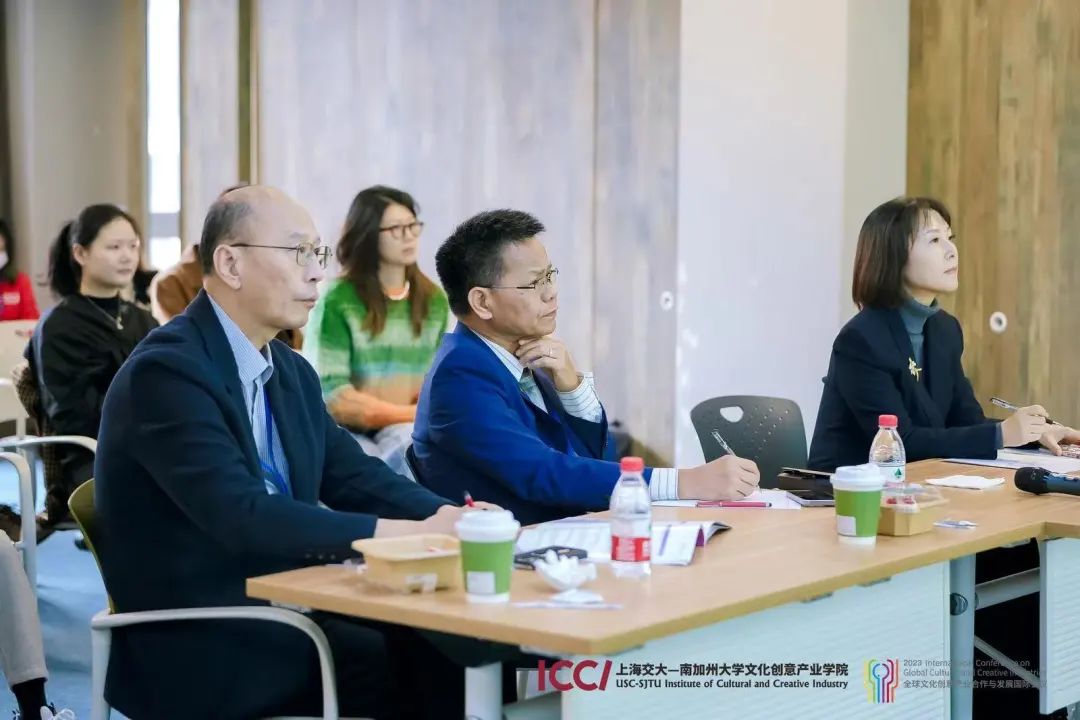
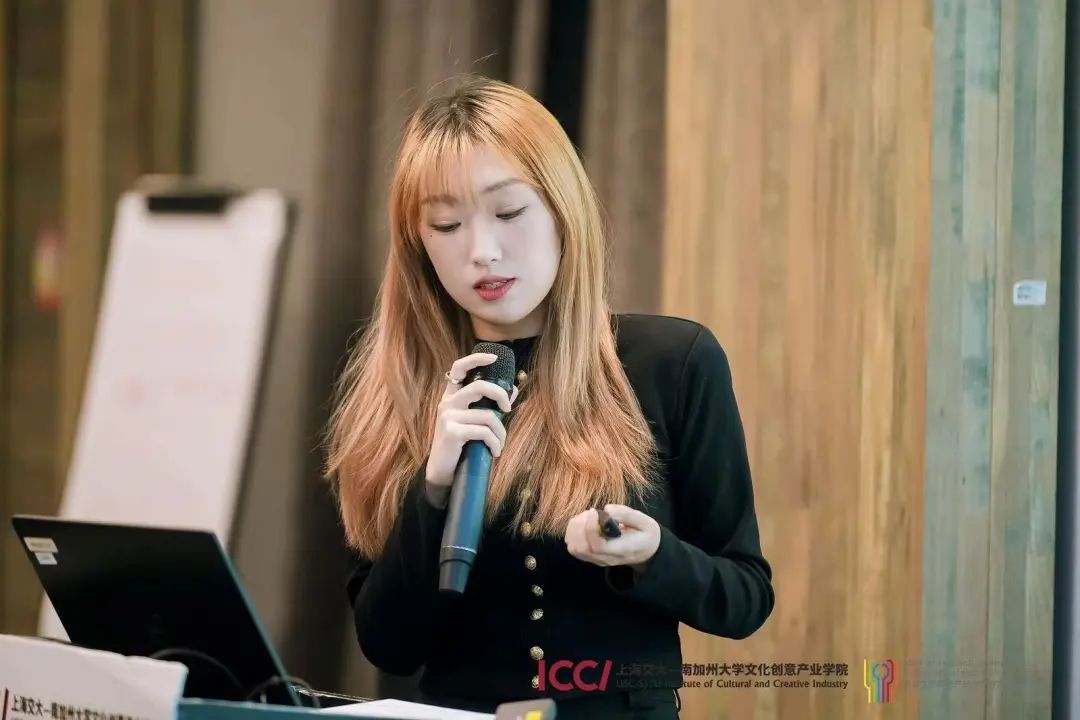
Shuhua ZHOU, Yu HUANG / Speaker Zhiyun CHEN's Sharing
The panel "Digital Intelligent Communication and Platform Recommendation" focused on AI and cultural communication. Speakers from Shanghai Jiao Tong University, China Central Academy of Fine Arts, Sanda University, and others discussed AI art authorization, generative AI, future environmental design, and research on Suzhou embroidery arts in virtual and real integrations. Host Professor Ke XUE, reviewers Professor Shuhua ZHOU, and Professor Yu HUANG engaged in extensive interactions with speakers, fostering deeper discussions.
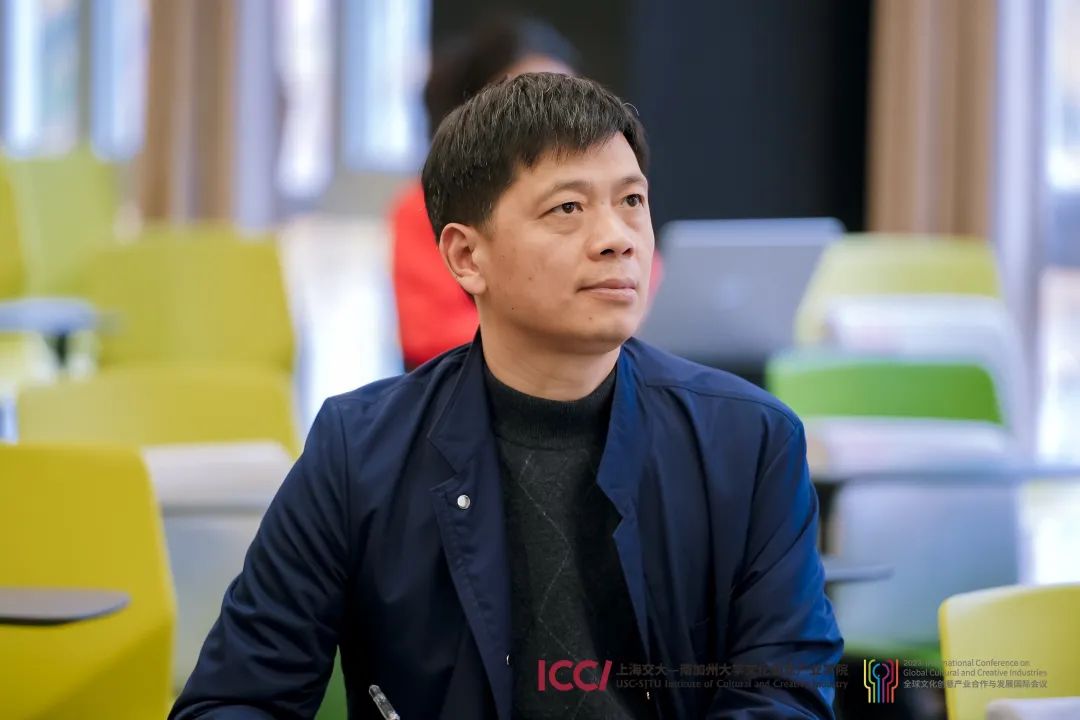
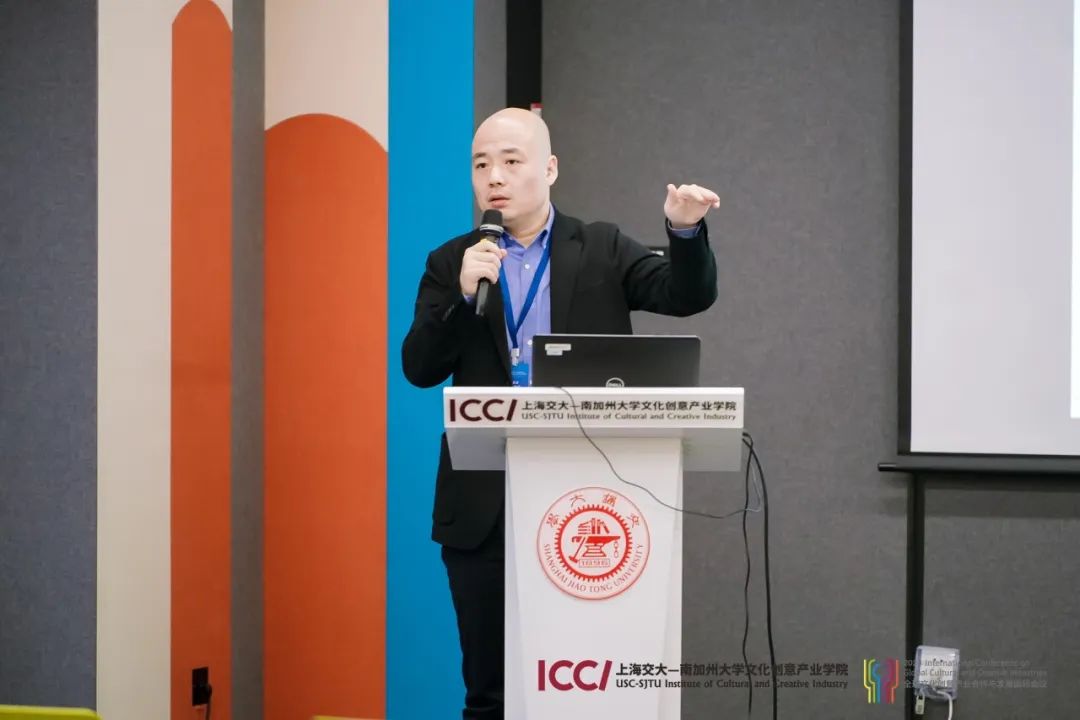
Bo CHEN / Modie SUN
The panel "Smart Cities and Public Culture" discussed digital advancements in cultural and urban development. Speakers from various universities and research institutes explored topics including gamified impact on urban civilization, development strategies for public culture in digitally advanced cities, and more. Host Lu XU and reviewers Bo CHEN and Modie SUN shared their perspectives and offered research recommendations on these diverse topics.
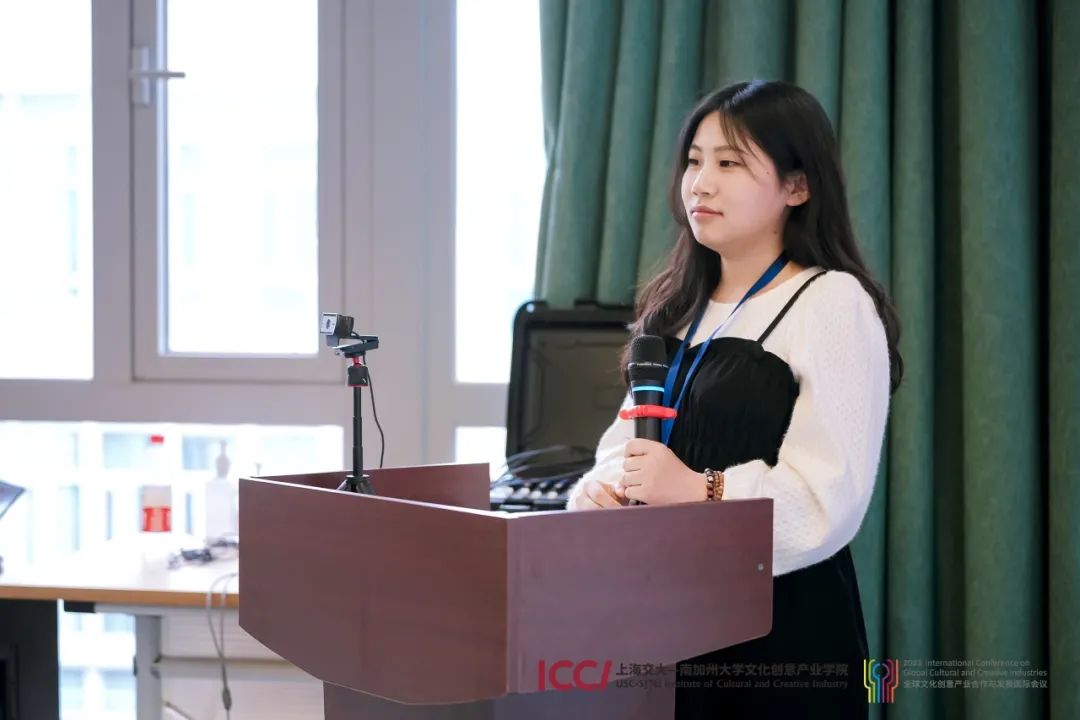
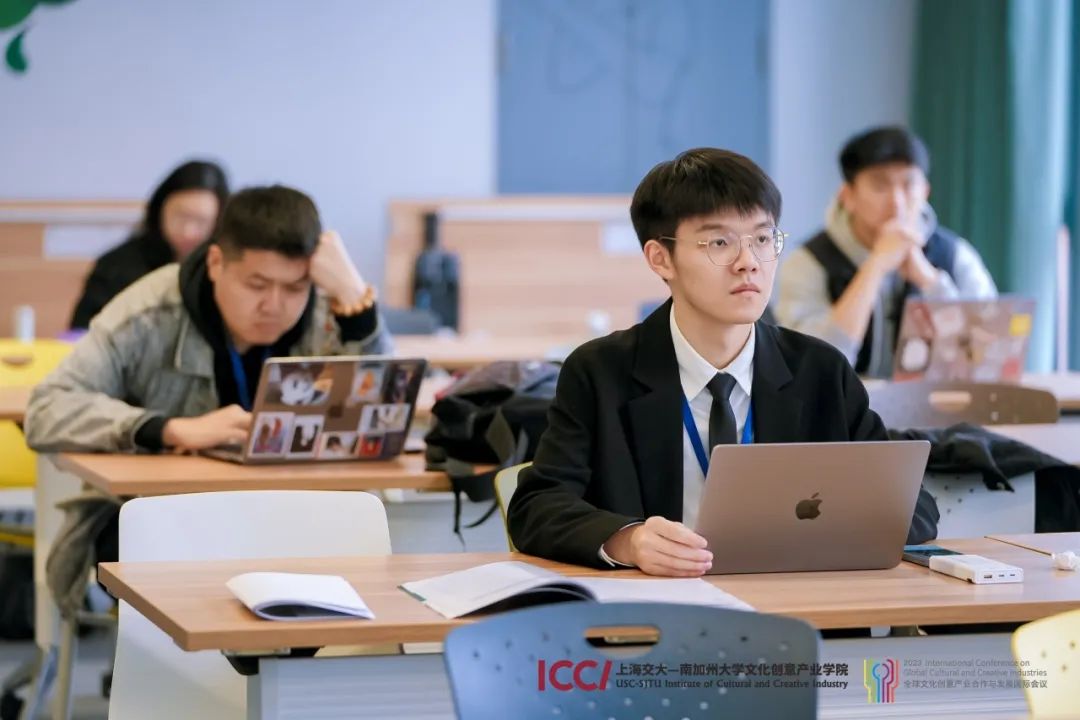
Speaker Fan PEI Sharing / Sub-forum of the Digital Transformation and Culture -tourism Integration
The sub-forum "Digital Transformation and Cultural Tourism Integration" focused on ecotourism, comprehensive cultural tourism, and related subjects. Experts from various institutions discussed topics like digital twins in cultural tourism, digital content, marketing, and gamification. Host Dr. Zheng QU, along with reviewers Dr. Yi XU and Dr. Wei WANG, shared their perspectives and provided suggestions for improvement in the discussed areas.
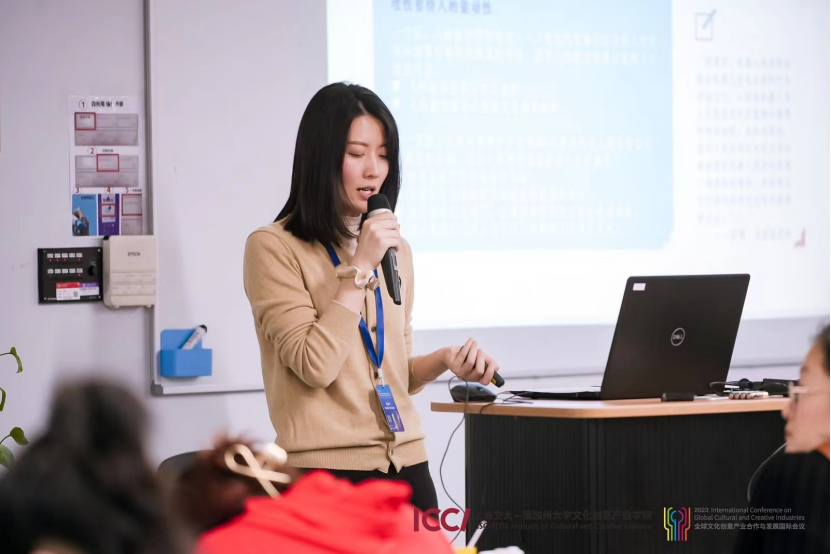
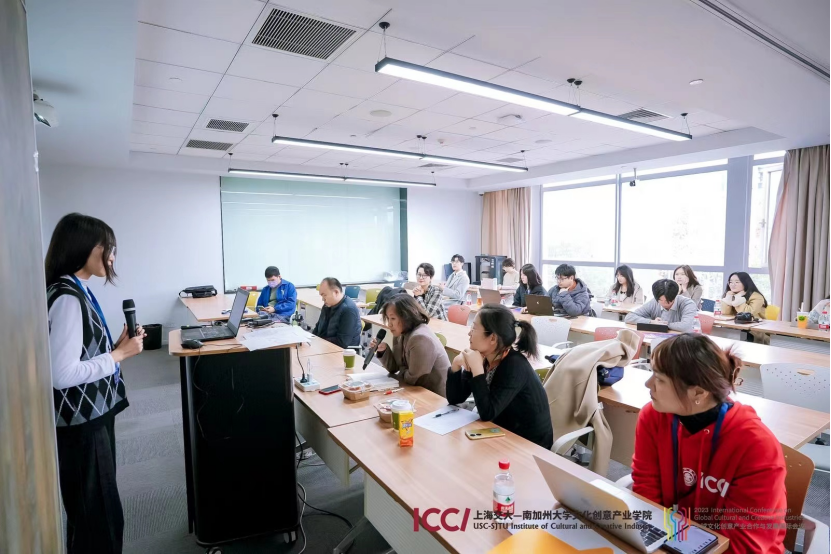
Speaker Xinyuan ZHANG's and Kezhu CAI's Sharing
The sub-forum "Digital Construction and Intangible Cultural Heritage (ICH) Representation" explored the impact of digital technology and artificial intelligence on cultural inheritance. Speakers from Shanghai Jiao Tong University and other institutions discussed the revival of Nvshu (women’s script custom) on social media, digital exhibitions as memory storage, interaction effects between ICH inheritors and the public, and cultural evolution mechanisms involving AIGC and humans. The discussions offered valuable insights and recommendations for innovative ICH development and inheritance. Host Zhixin XU, along with reviewers Lili WANG and Minghua SHAO, shared perspectives and offered research recommendations on these diverse topics.
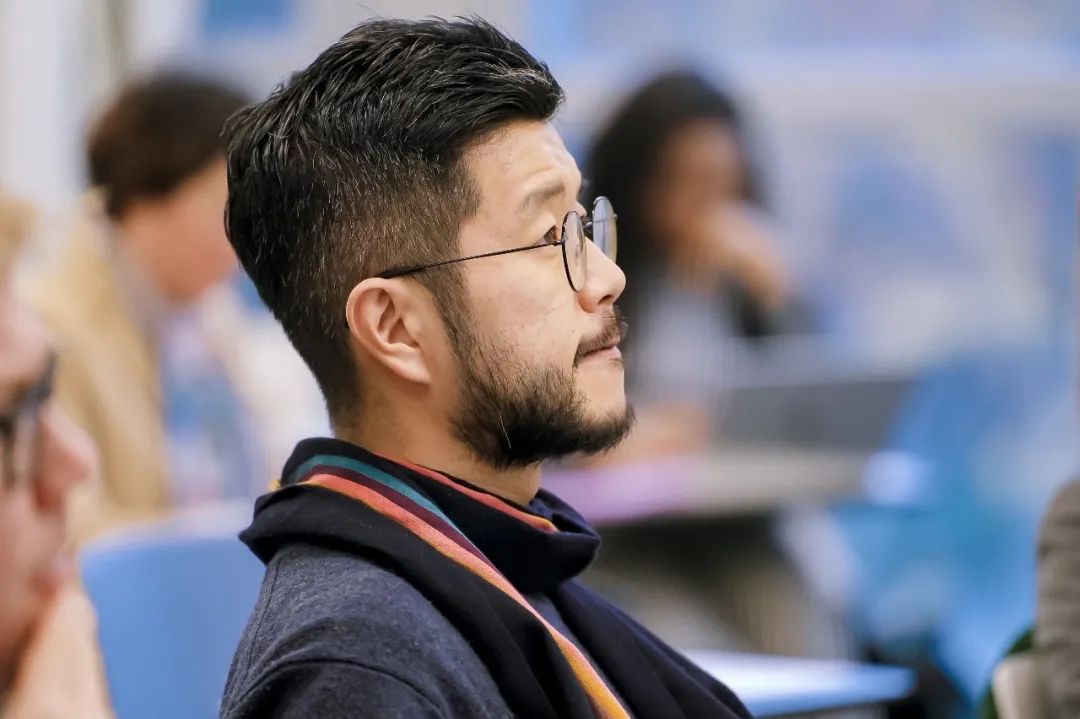
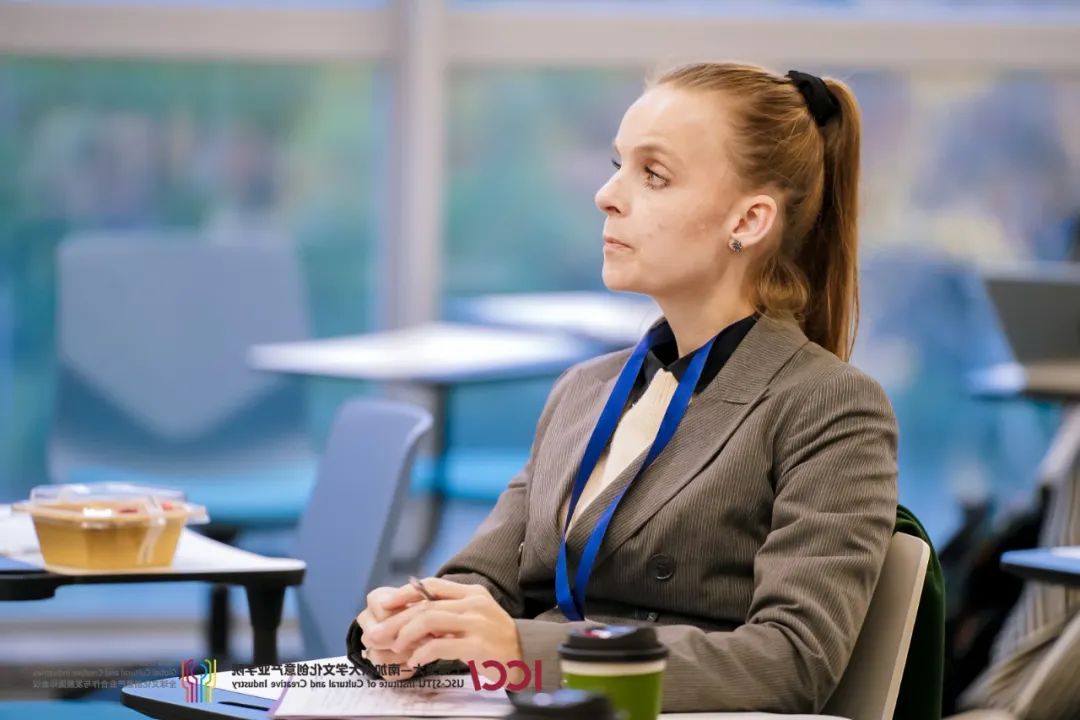
Sunghan Ryu / Emma DUESTER
The "Digital Creativity and Museological Space" sub-forum focused on museum VR/AR technology and virtual screening. Experts from various institutions, including Fudan University, Shanghai Jiao Tong University, Seoul National University, and Utrecht University of Applied Sciences, discussed digital creative culture in museums, creative tourism imagery, theater presentations on screen, and collaborative design using visual identification apps for traditional Chinese cultural products. Host Titus Levi and reviewers Sunghan Ryu and Emma Duester provided research recommendations based on the speakers' insights.
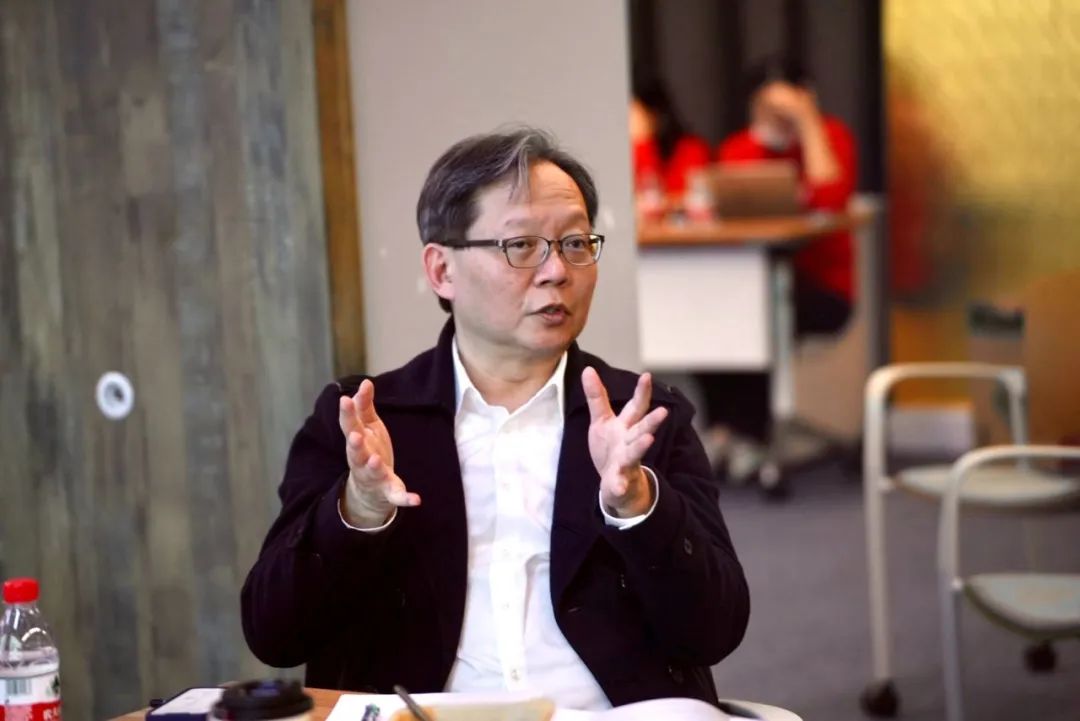
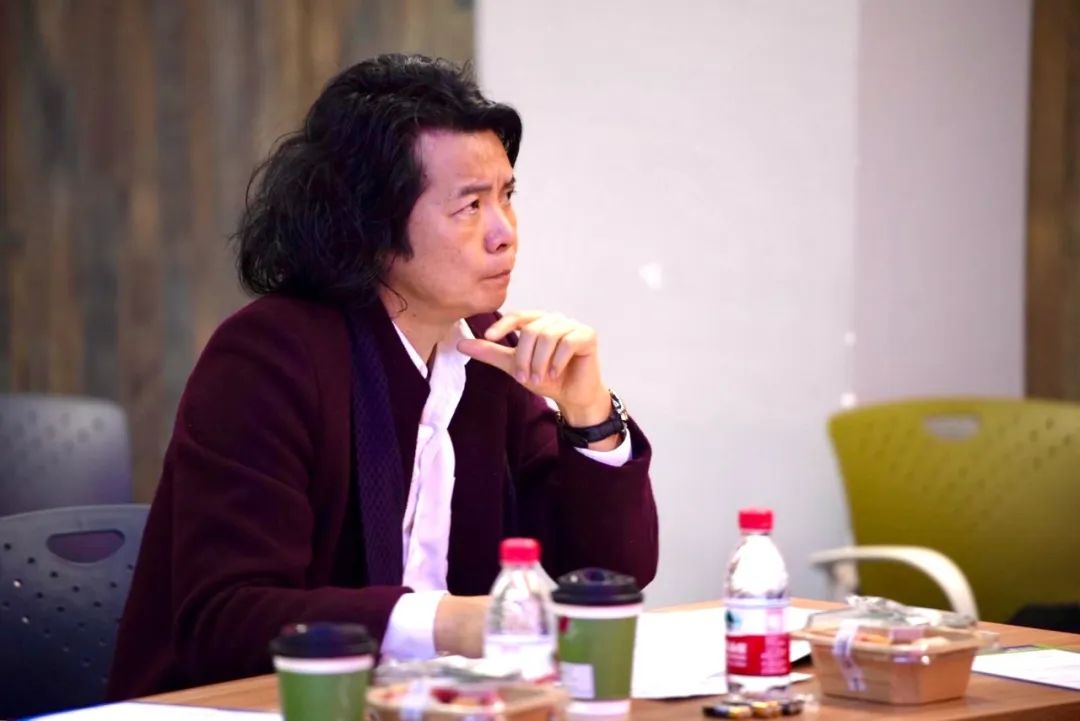
Ben Lee / Sherwood HU
The sub-forum "Creative Audio-visuals and Technological Empowerment" discussed film, music, interactive digital design, and the metaverse. Speakers from various institutions explored cross-cultural communication in the metaverse, algorithmic strategies on music platforms, multimodal interactive digital art, and related topics. Host Dr. Yu YAN and reviewers Professor Ben Lee and Professor SherwoodHU actively engaged in discussions with the speakers.
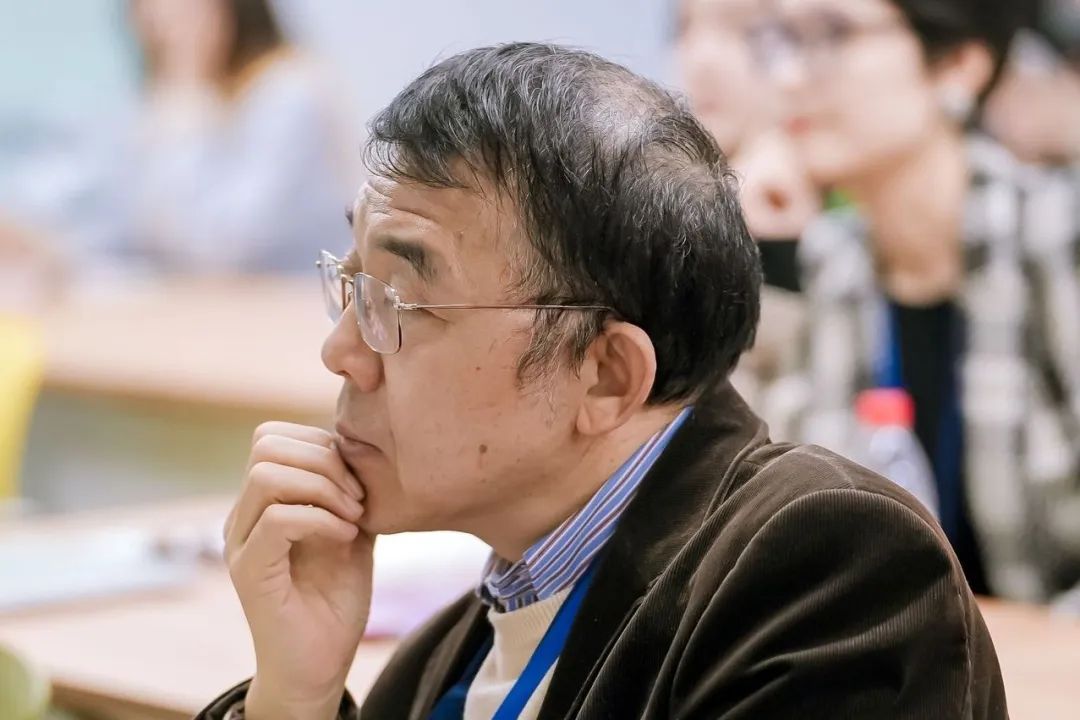
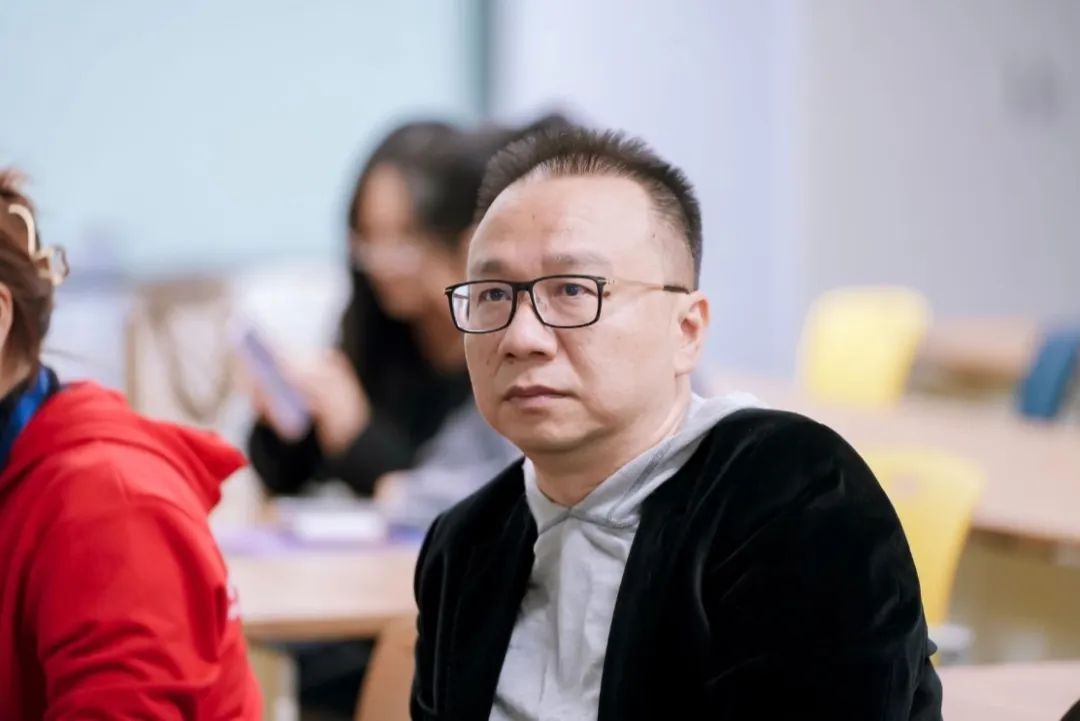
Jinzhang JIANG/ Jun WANG
The sub-forum "Cutting-edge Technology and Creative Resonance" covered the metaverse, intelligent media, AI image creation, and related fields. Scholars discussed trust mechanisms in the metaverse, Reality in AI generated images, digital memories in historical Chinese brand communications, and investment trends in intelligent media. Host He Jia and reviewers Professor Jinzhang JIANG and Dr. Jun WANG provided insights and research recommendations on these topics.
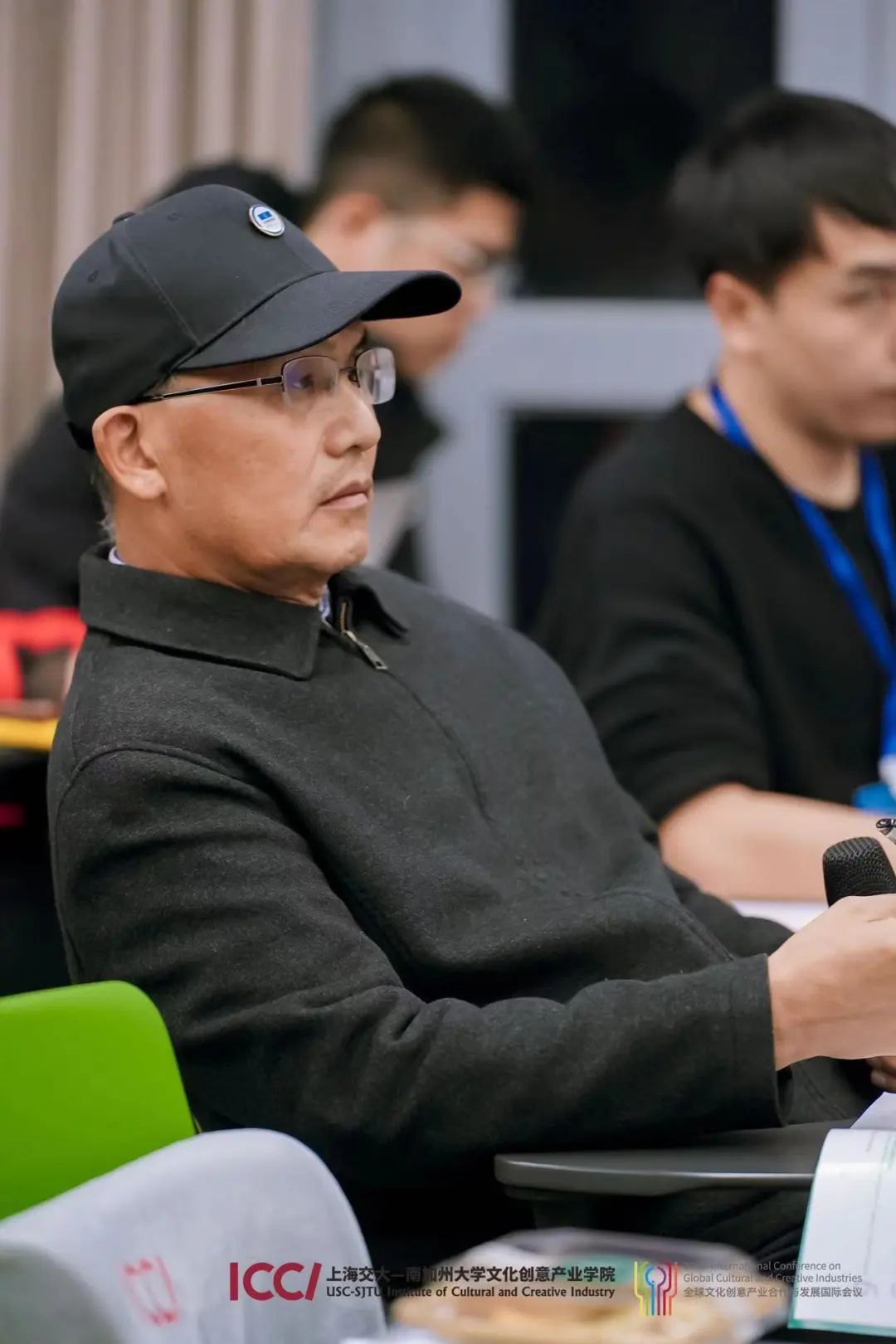
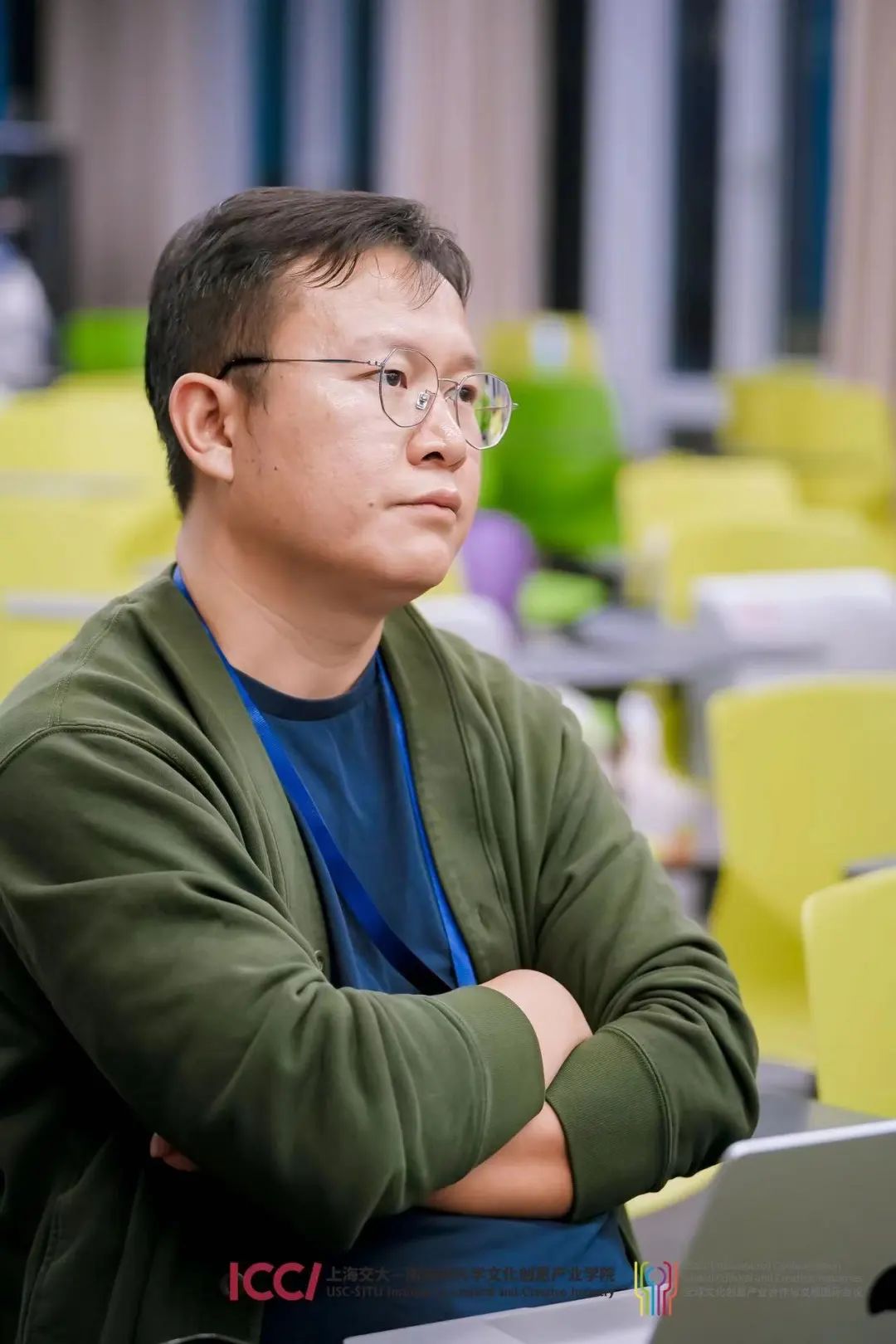
Yongliang XIAO / Fanjun ZHANG
The sub-forum "Game Experience and Emotional Connection" discussed NFT games, gamification in museums, and virtual space performances. Scholars explored player types in NFT games, disabled gamers in value co-creation theory, gaming's impact on prosocial behavior, gamification of Chinese museums applications, and post-humanist performances in the metaverse. Professor Yongliang XIAO and Mr. Fanjun ZHANG provided commentary and reviews.
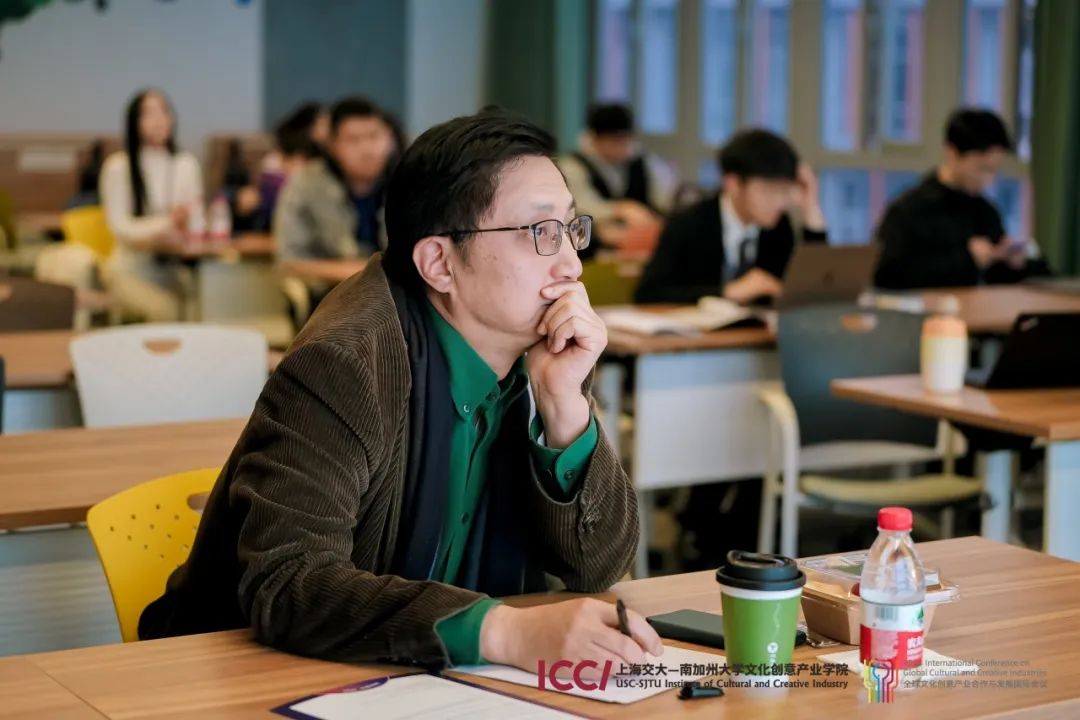
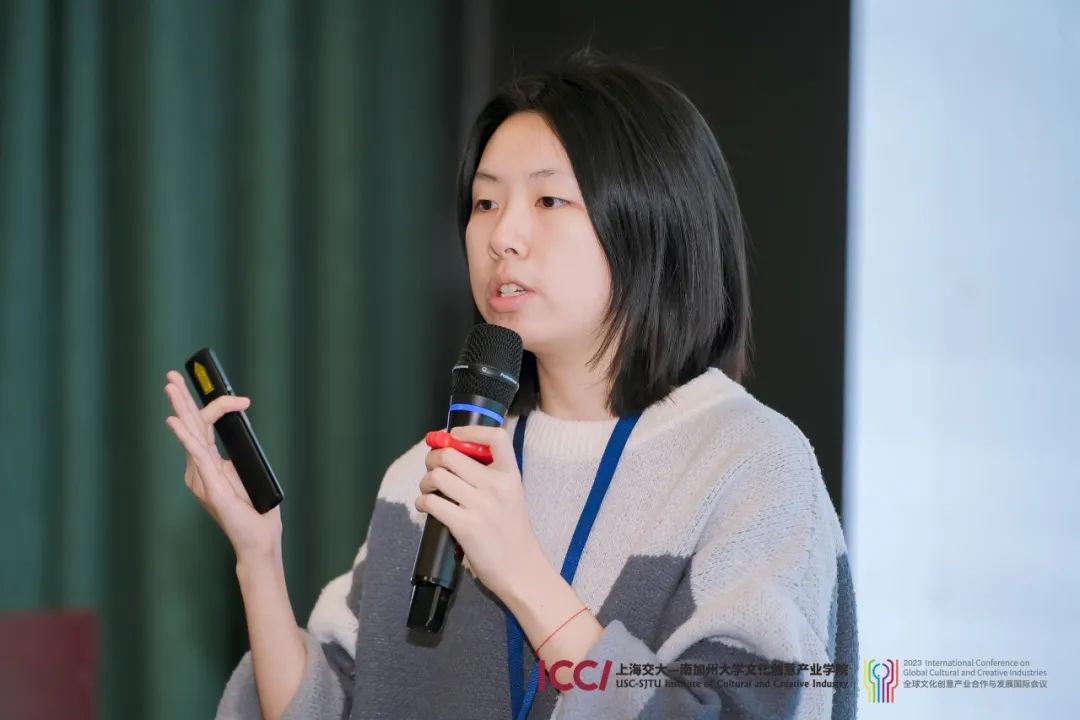
Weimin ZHANG/ Speaker Zili CHEN's Sharing
The sub-forum "Human-Computer Co-Creation and Ethical Reconstruction" covered algorithms, animated films, AIGC, and virtual humans. Experts from various institutions discussed algorithmic literacy, computational cinema, digital innovation in intangible cultural heritage, and virtual idols. Host Dr. Wei WANG and reviewers Professor Weimin ZHANG and Dr. Yue YUAN offered insights on case selection, research methods, conclusions, and future research suggestions based on the presented papers.
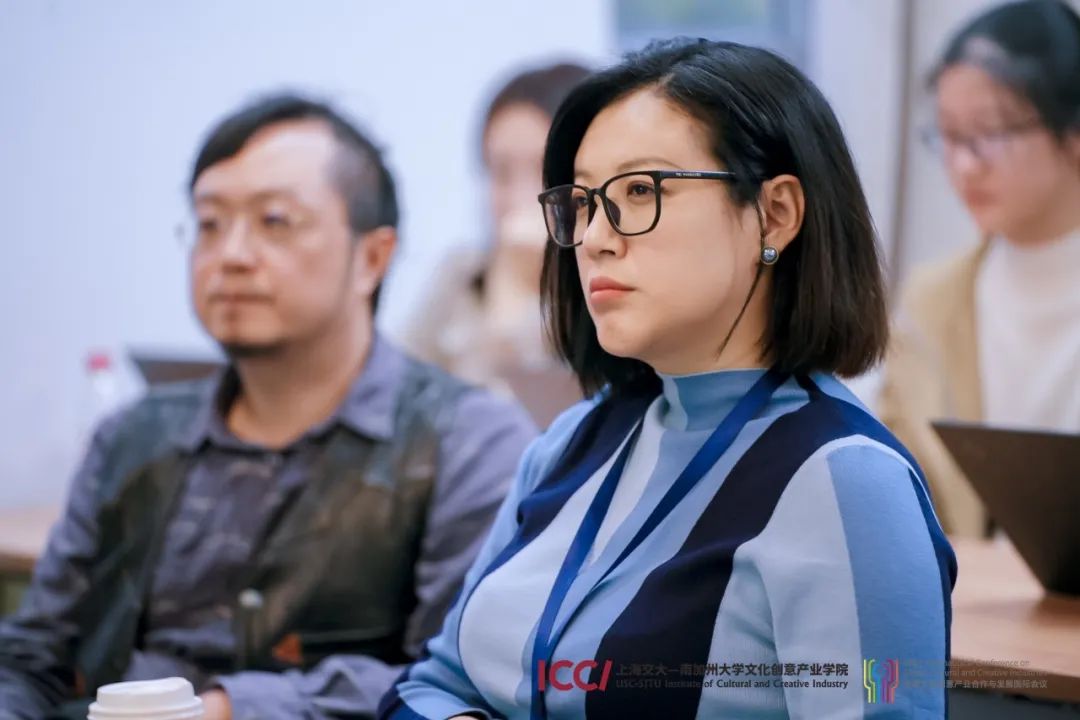
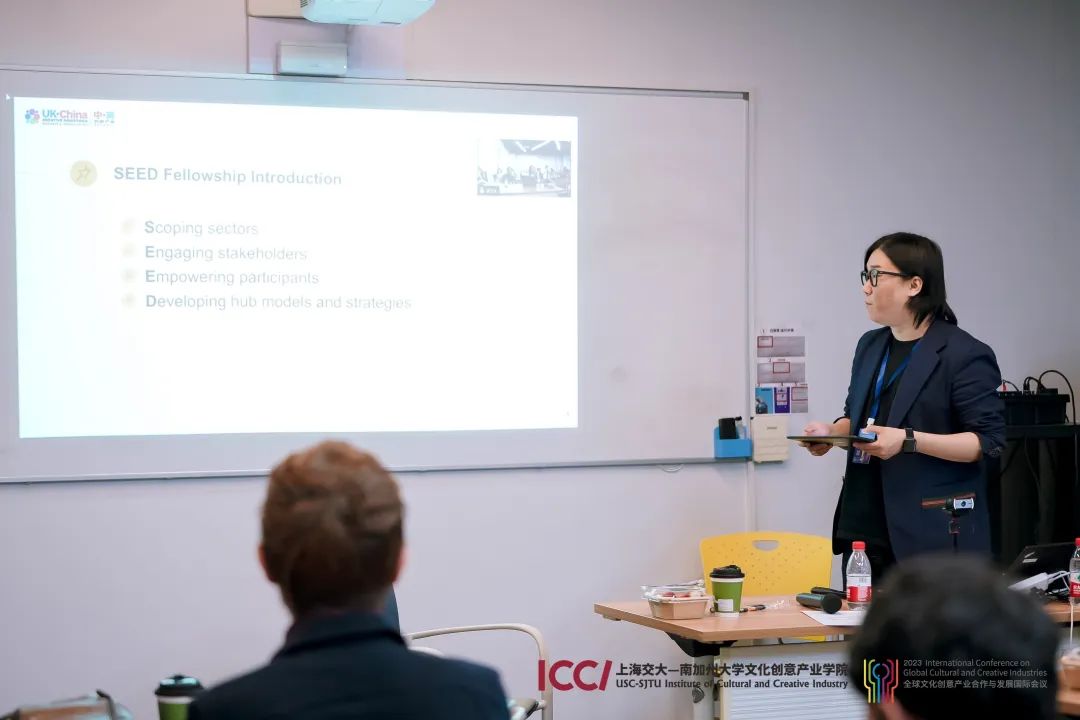
Lena ZHANG / Professor Catherine Richardson's team member from the University of Kent / Speaker
The sub-forum "Imagining the Future and International Collaboration" addressed bilateral collaboration, comparative barriers, and immersive media projects in cultural and creative industries. Experts from various universities discussed key themes like industry health, China-UK collaboration in museum sector, immersive media effects, industry barriers in virtual content creation between China and the UK, and future narratives on sustainable diets. Dr. Lena ZHANG provided insights on these topics.
Closing Ceremony & Awards Ceremony
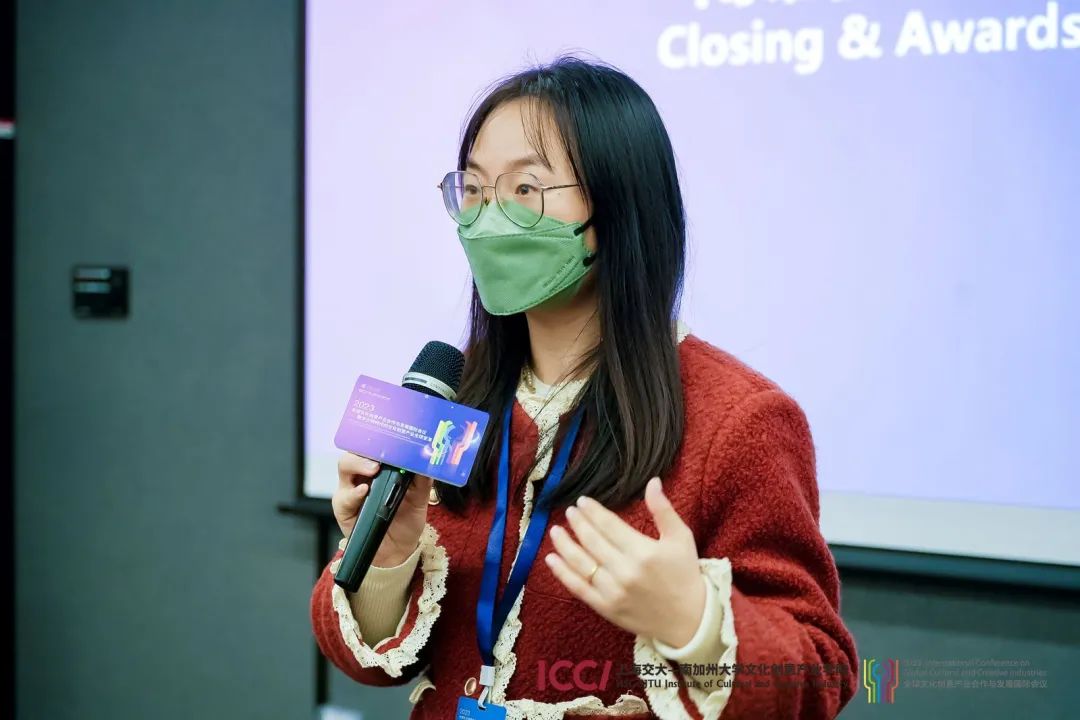
At the closing ceremony overseen by Dr. Wei WANG, Secretary-General of the Association of International Culture and Creative Industry Research (referred to as "the Association"), joint leaders and Professor Ben Lee from the Annenberg School for Communication and Journalism at the University of Southern California revealed the approval of twelve projects in the second phase. These projects, spanning institutions worldwide including the University of Southern California, Yale University, National University of Singapore, Utrecht University, University of Helsinki, Shanghai Jiao Tong University, Zhejiang University, Xi'an Jiaotong University, and East China Normal University, have received funding.
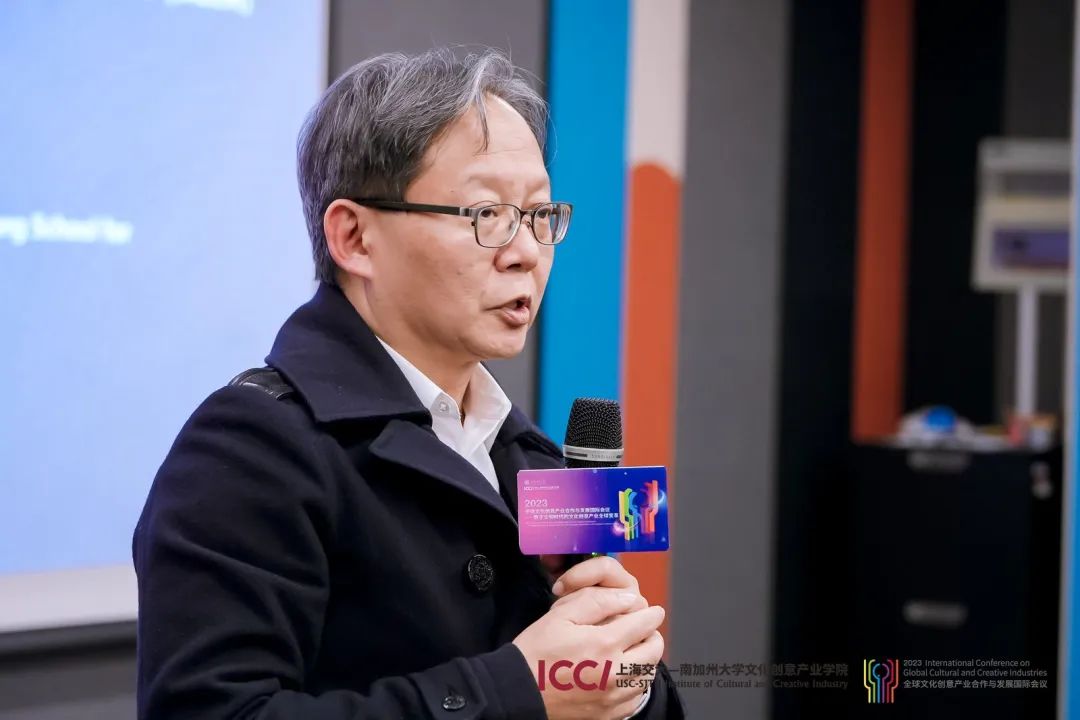
Professor Ben Lee highlighted the Association's objective to promote cross-national interdisciplinary collaboration and innovation, facilitating practical opportunities for global cultural and creative industry professionals. In the first phase, the Association supported ten research projects involving experts and scholars from institutions like Shanghai Jiao Tong University and Imperial College London, fostering international cooperation and advancing research in cultural creativity. This initiative has led to several high-level publications in Chinese and English, participation in over twenty international conferences and lectures, and the development of various VR/AR exhibits. Moving forward, the Association hopes to provide more research opportunities for cultural and creative scholars to amplify Chinese perspectives and expertise on the global platform.
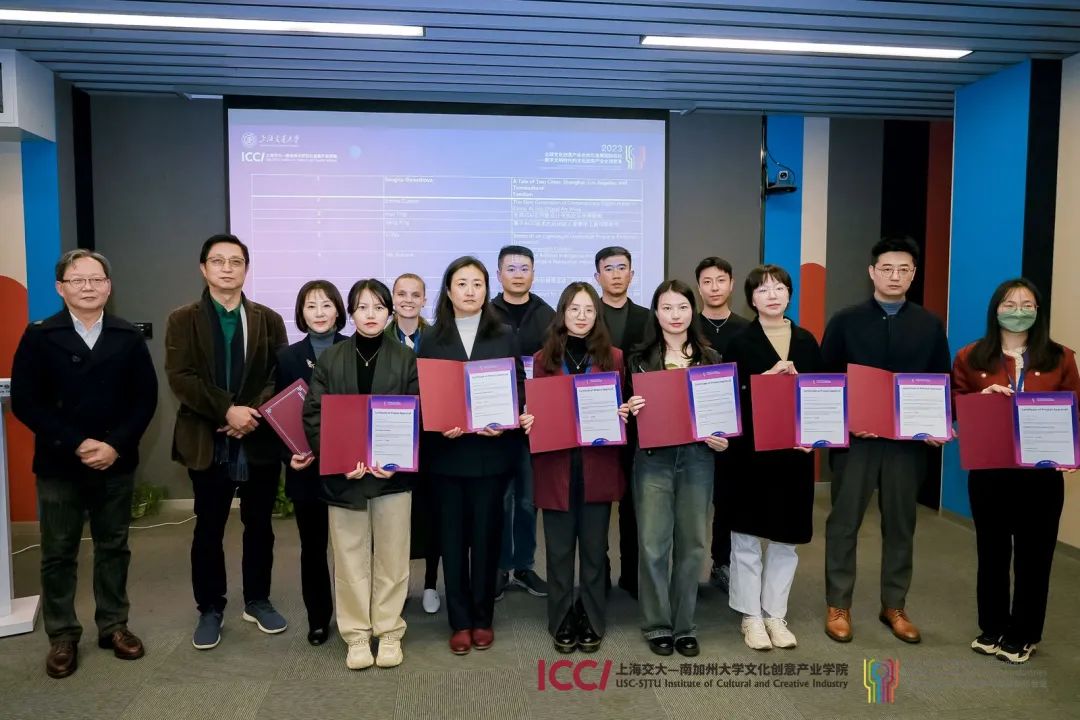
Phase Two Project Initiation
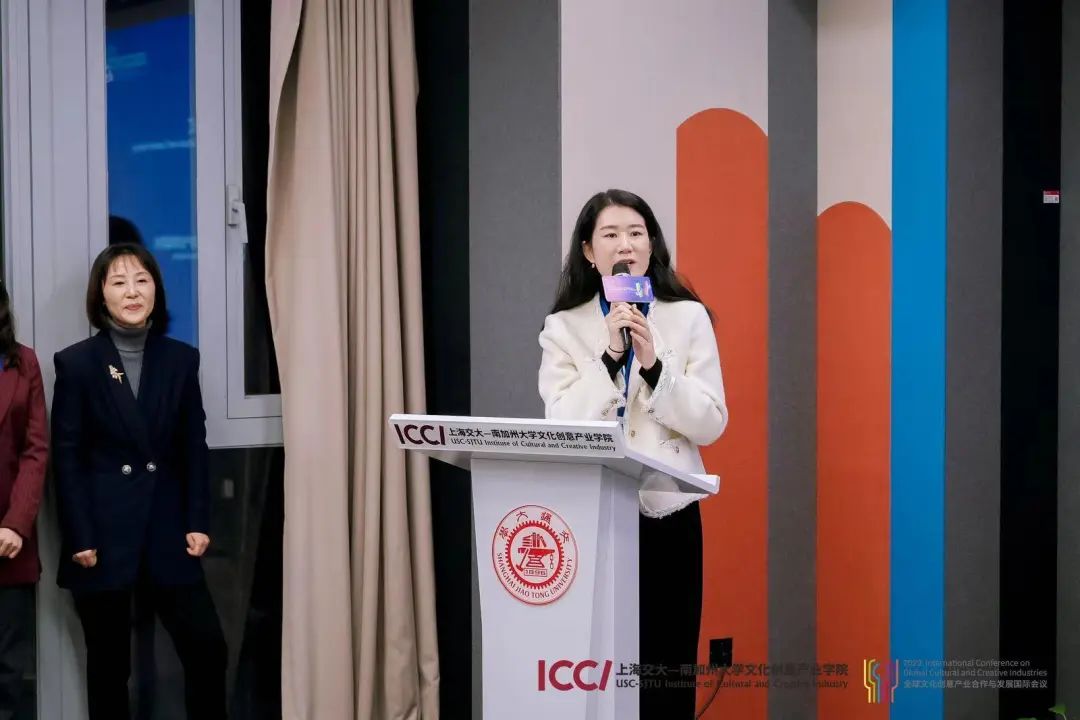
Academic Secretary Ms. Qi FAN presided over the announcement of the Academic Rising Star Award recipients, delivered by Professor Weimin ZHANG.
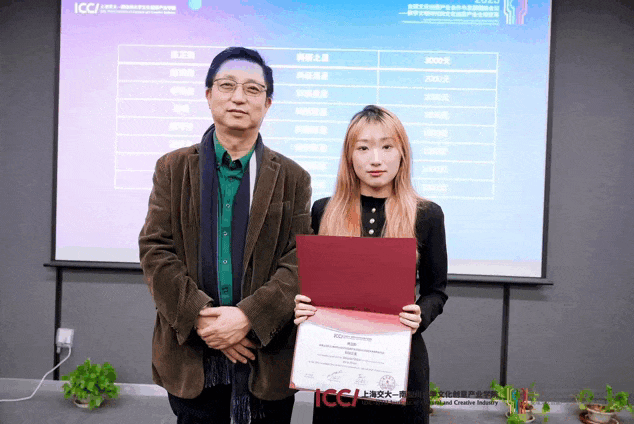
Weimin ZHANG, Feng ZHAO, Ke XUE, and Jinzhang JIANG presented awards to the winning students.
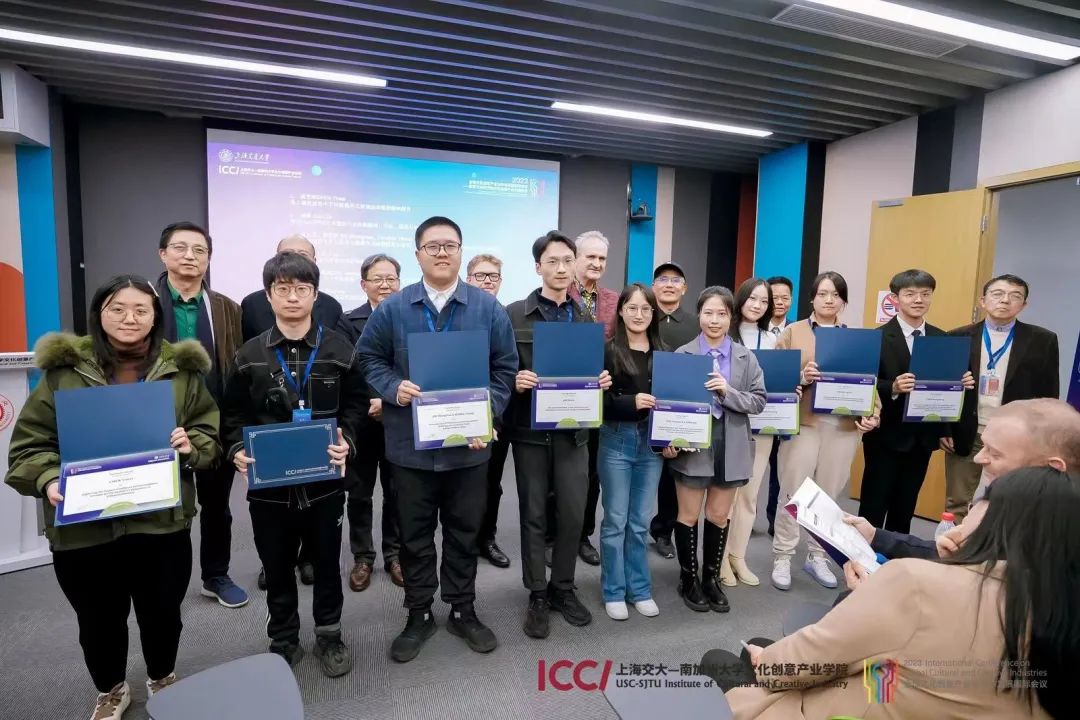
After that, Professor and Dean Weimin ZHANG announced the recipients of Top Paper Awards. This final part of the closing ceremony was hosted by Top Paper Award Secretary Dr. Lu XU during the conference. Eight papers, including "Investigating the Influence of Different Exhibition Formats on Audience Experience in Online Virtual Exhibitions" stood out among over 300 submissions.
Highlights
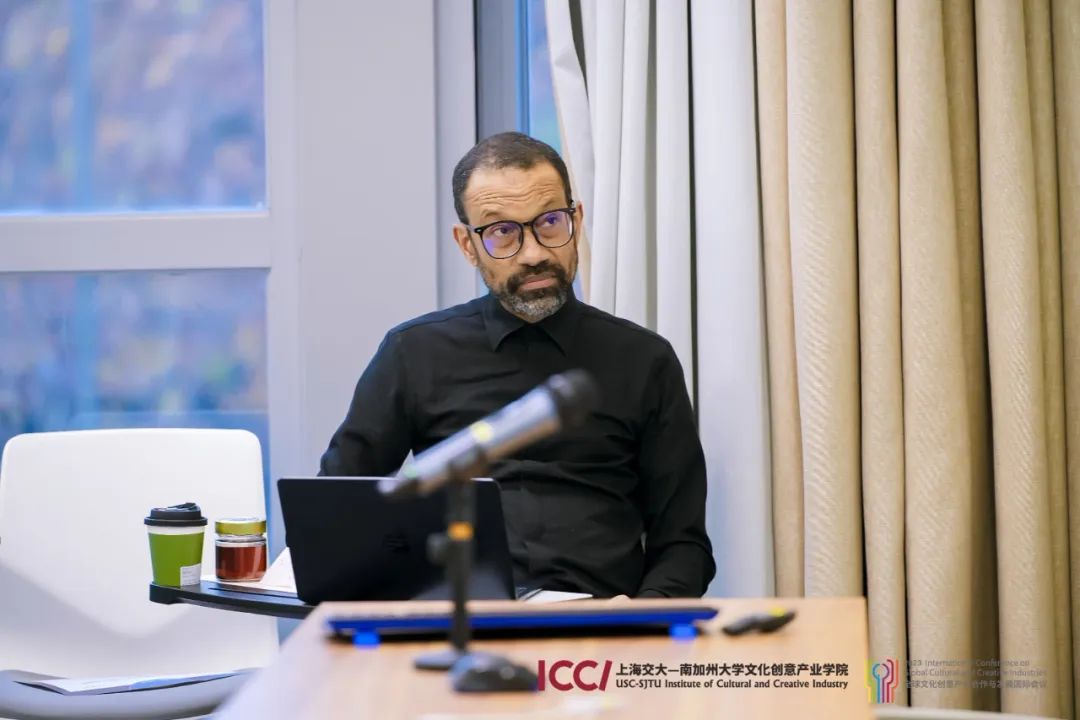
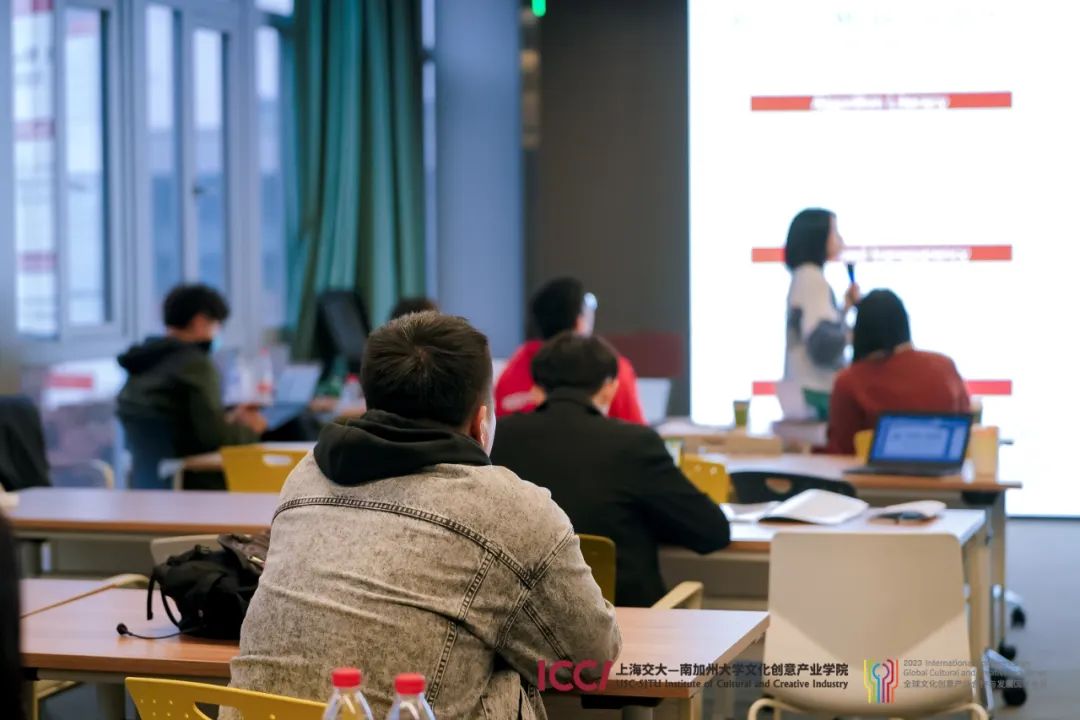
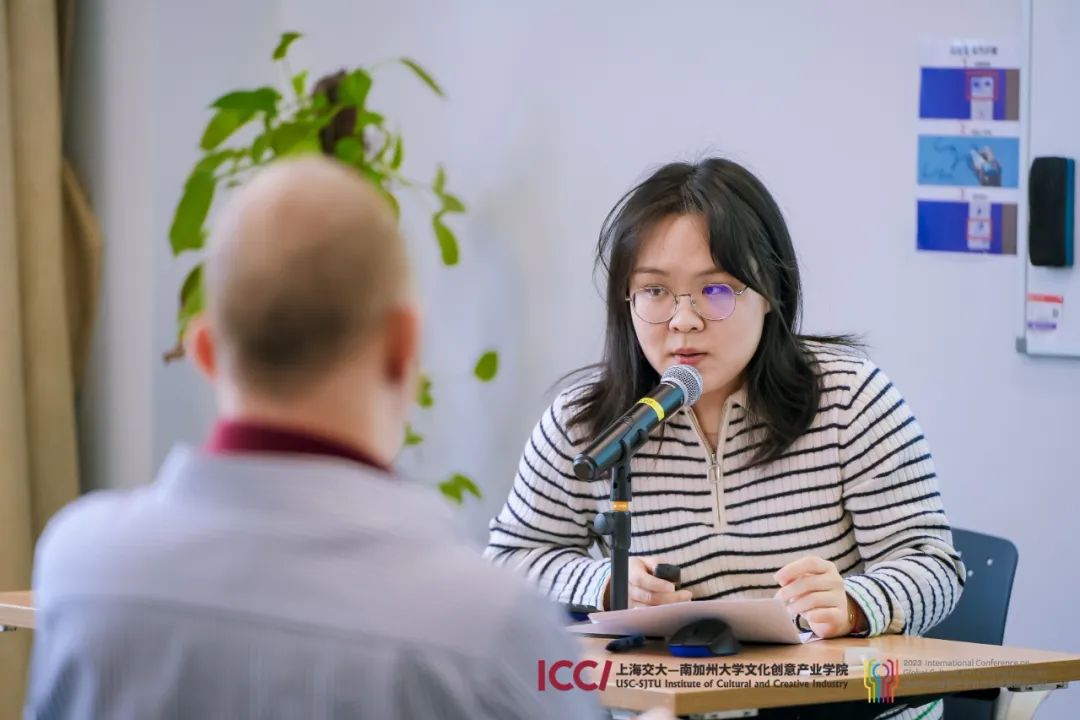
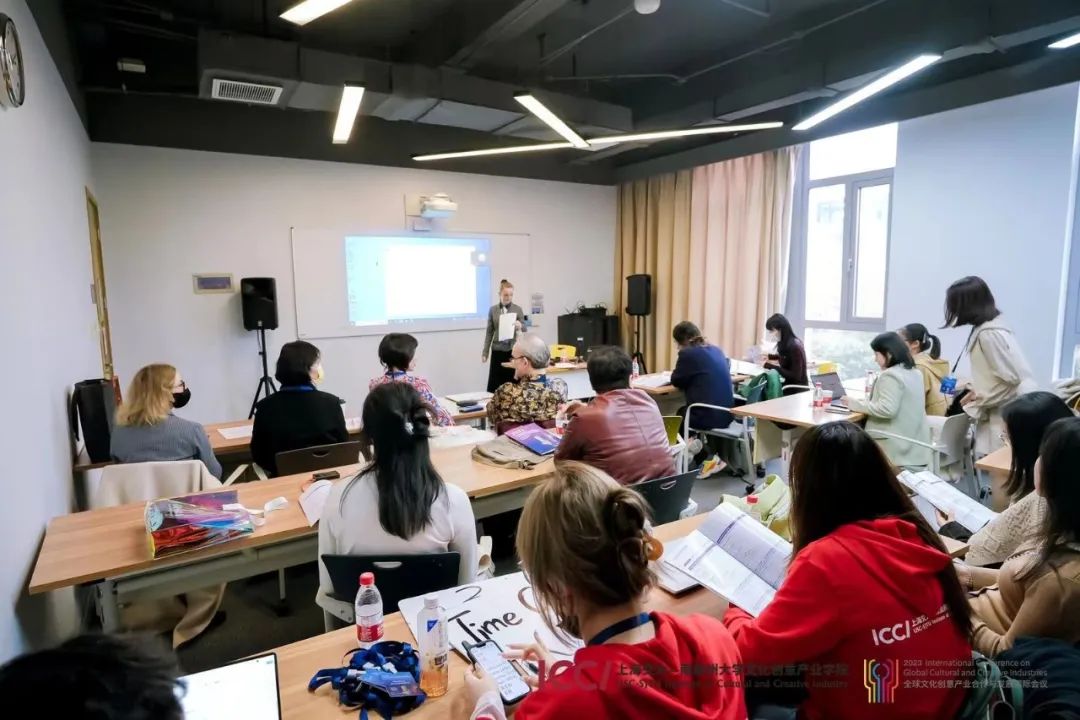
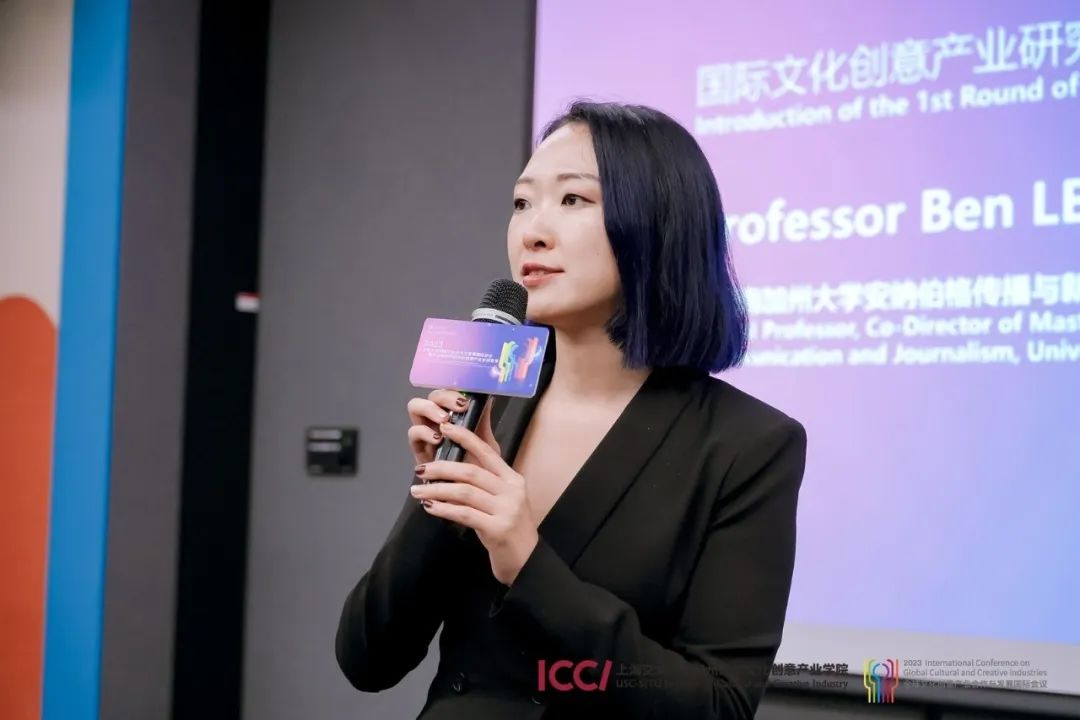
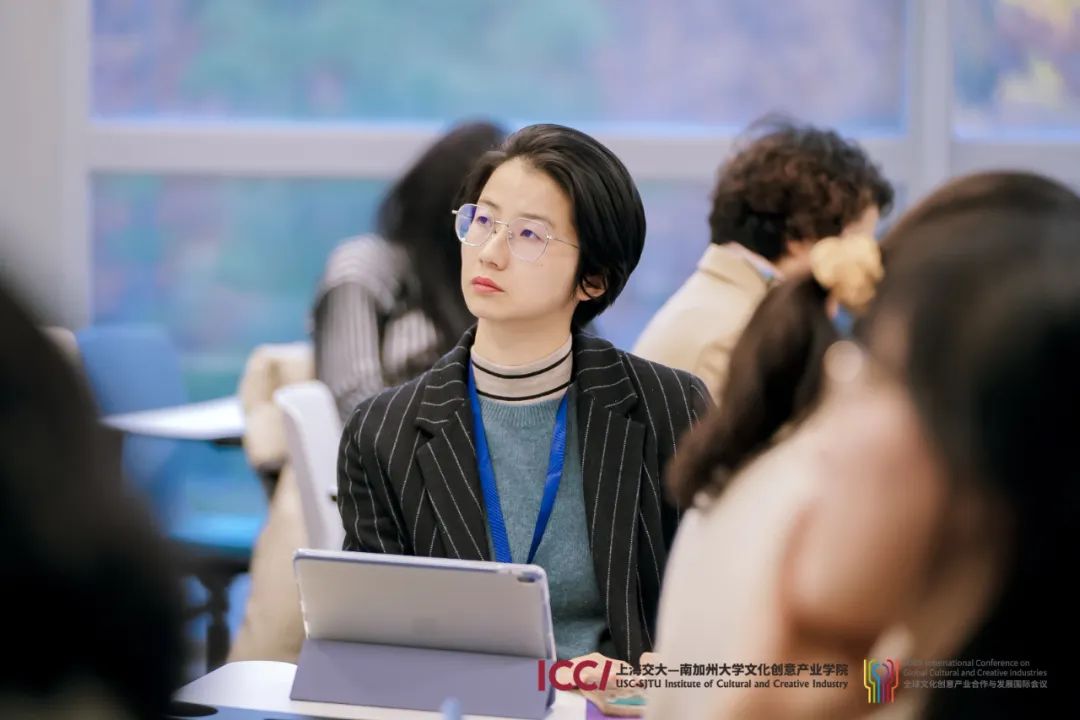
Editor on Duty: Chen Diwei
Responsible Editor: Jiang Qianqian, Li Xinyu

